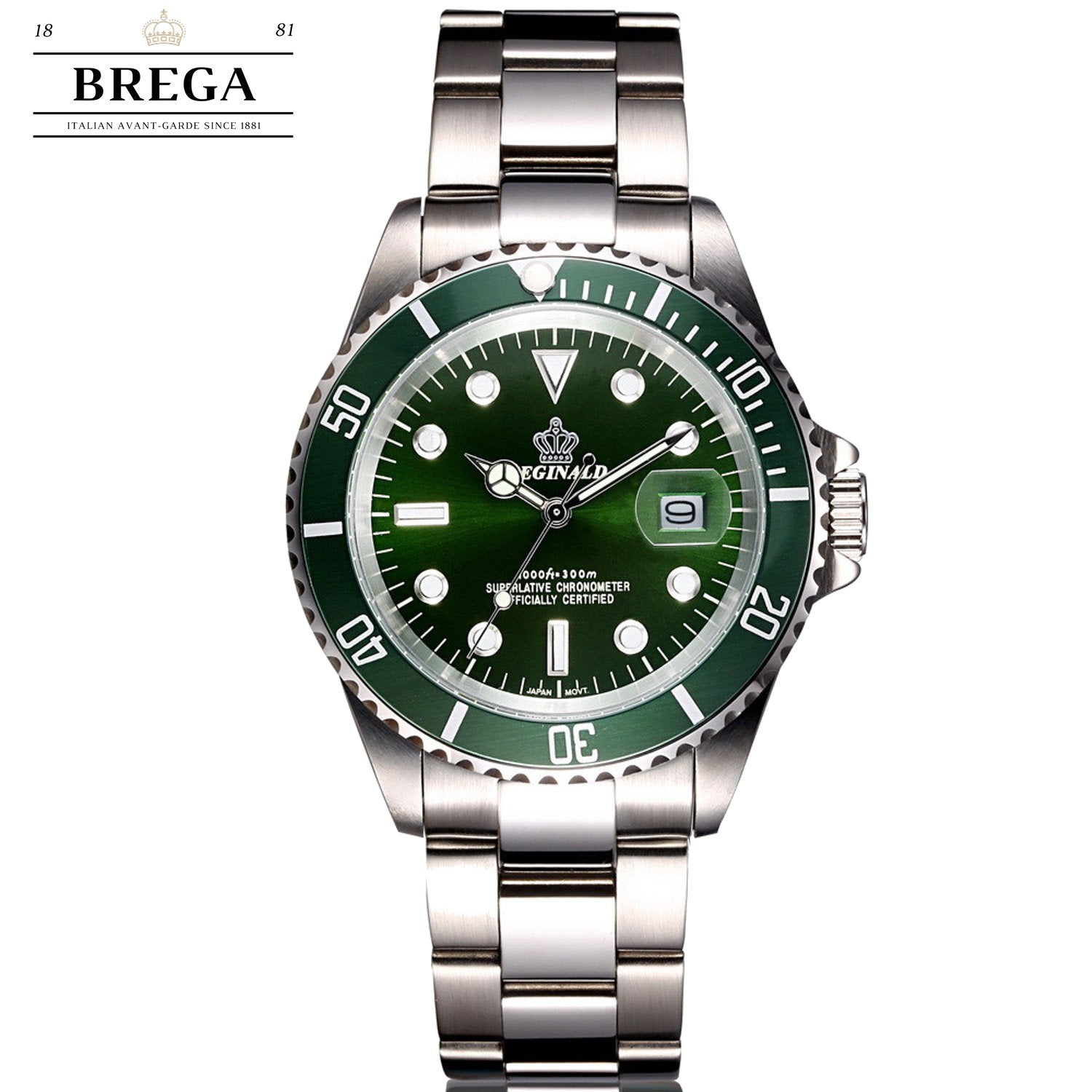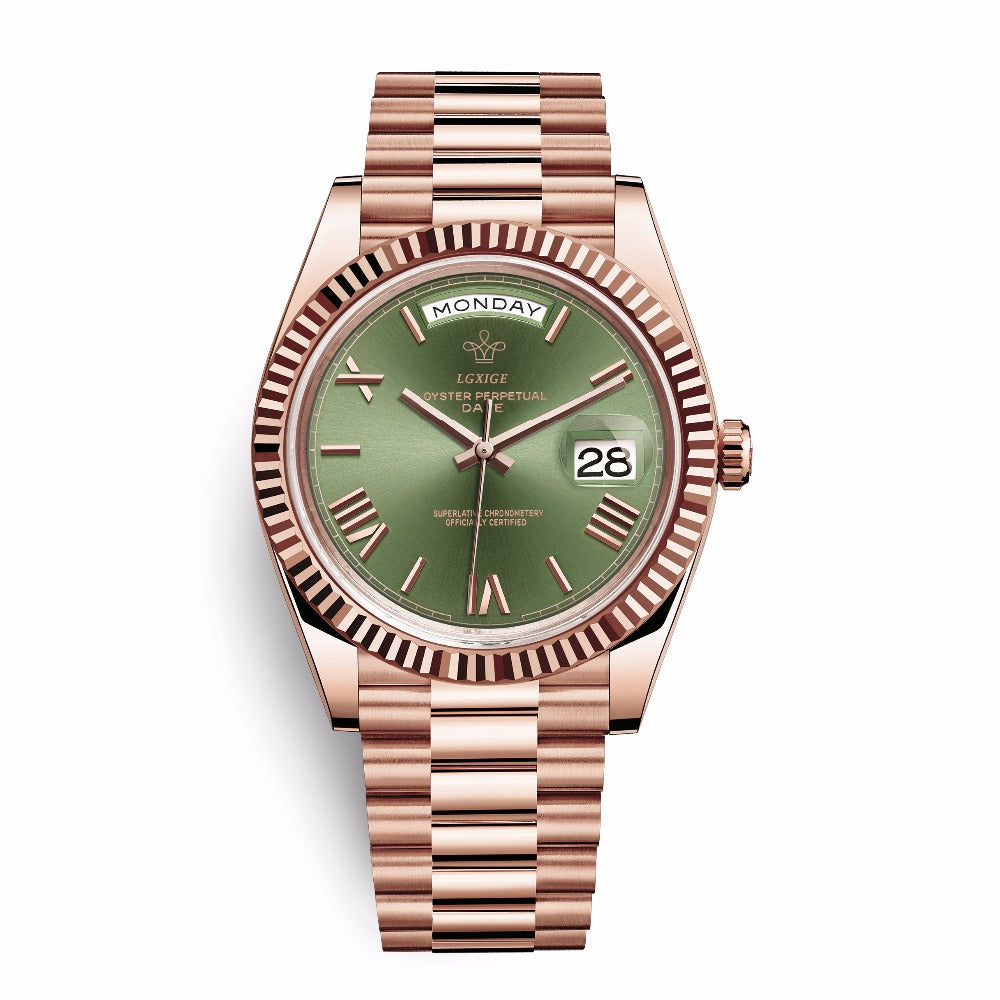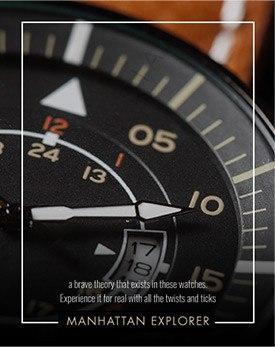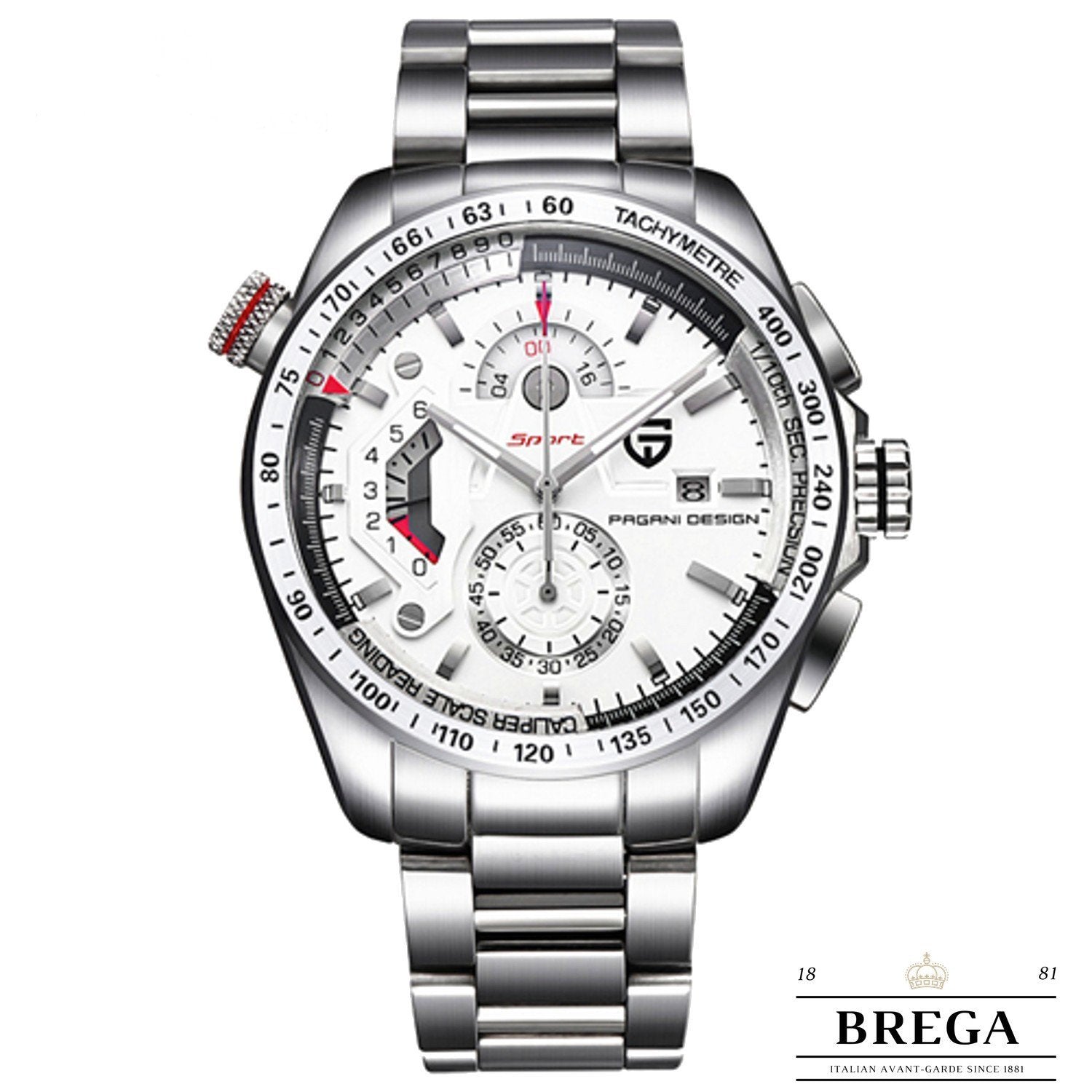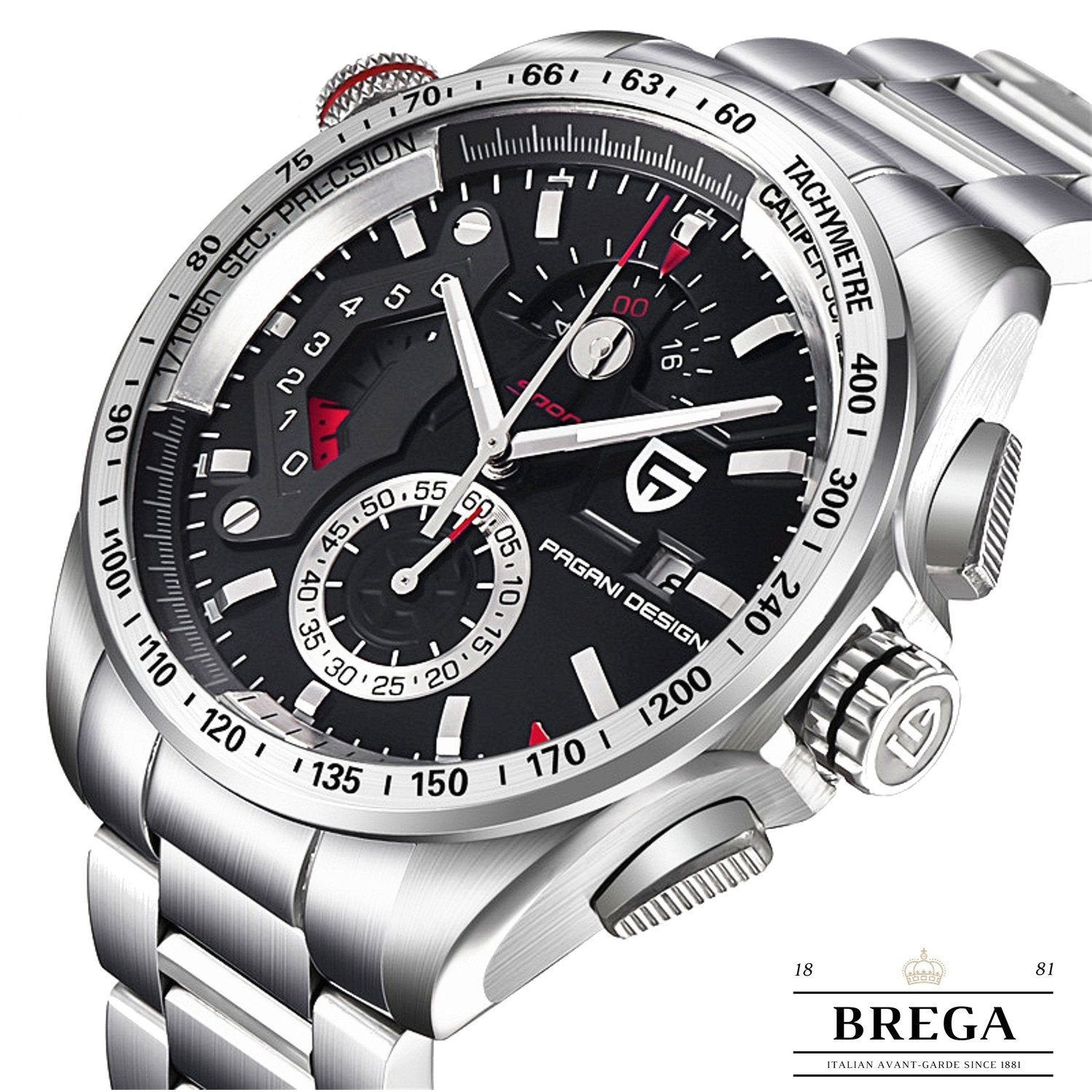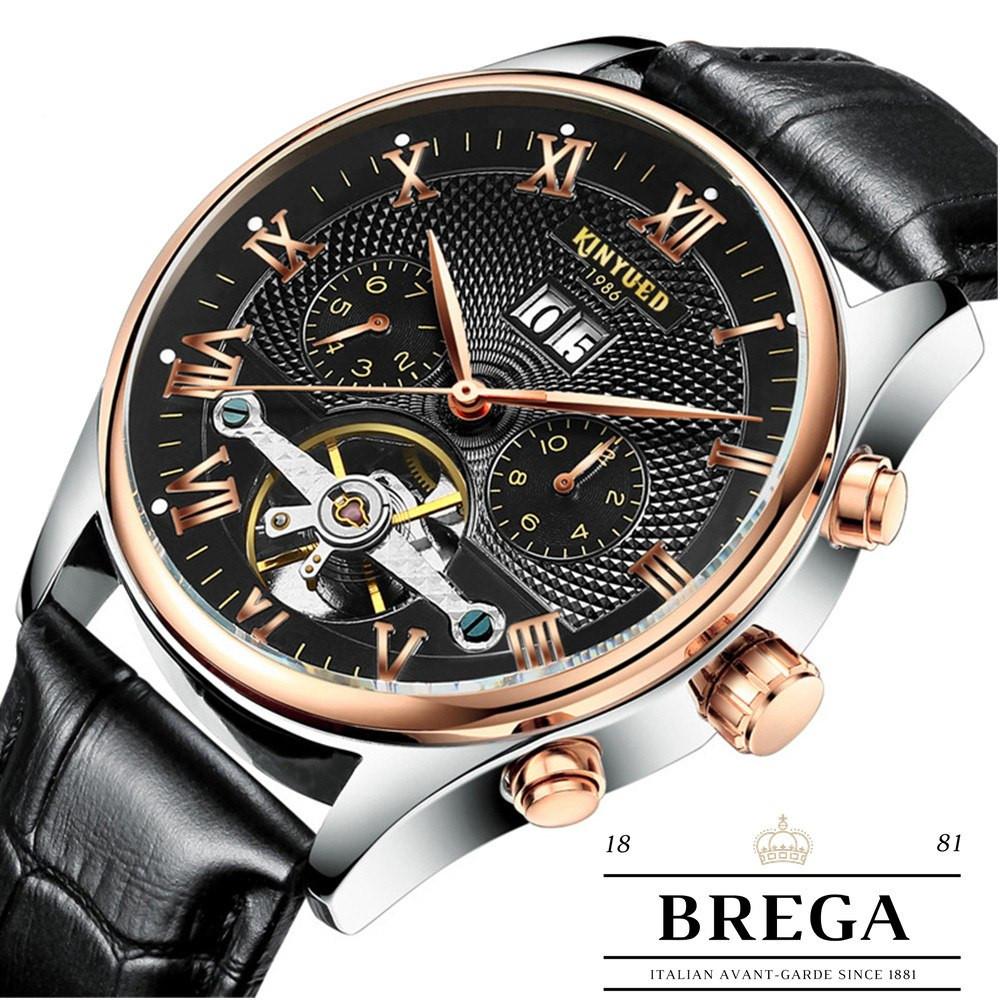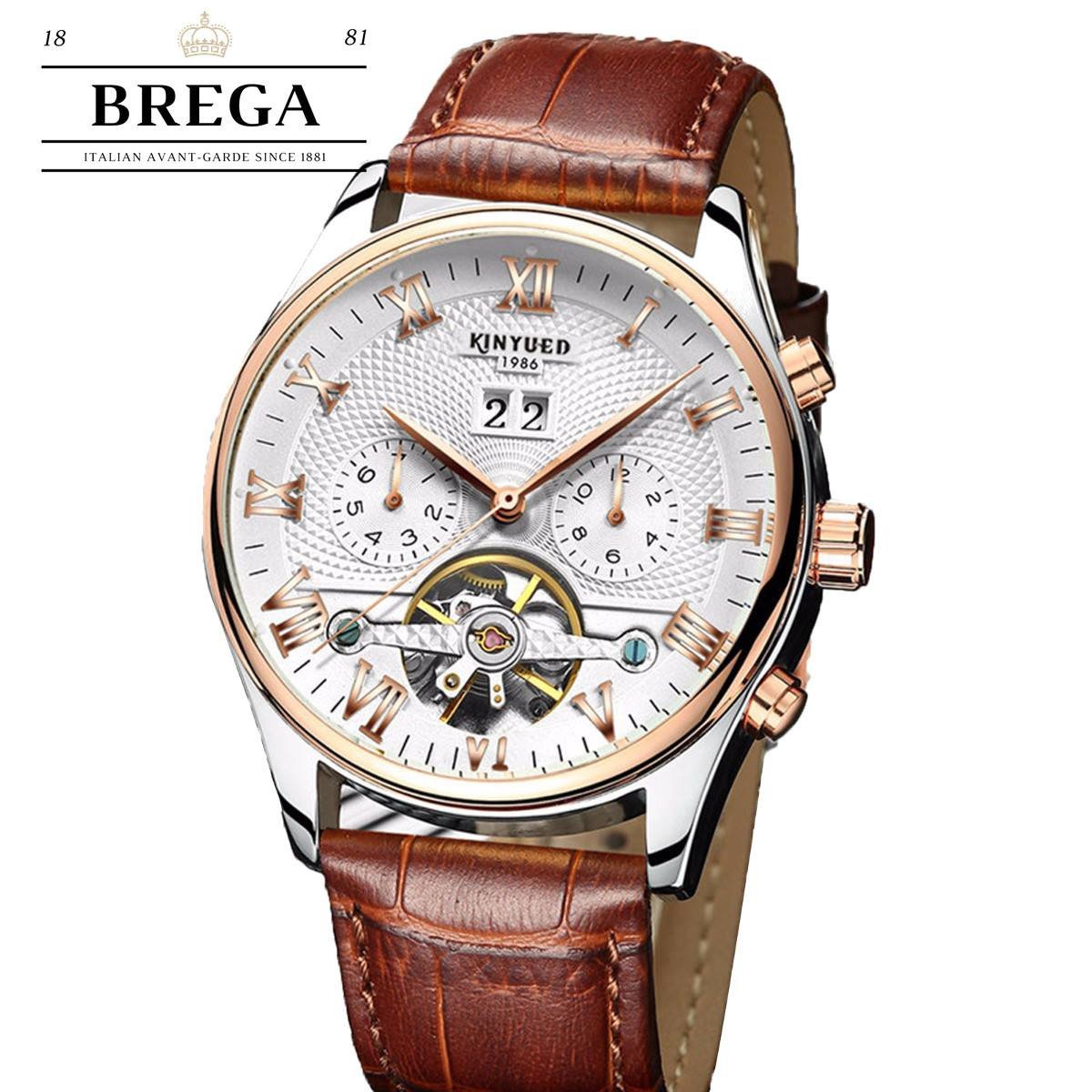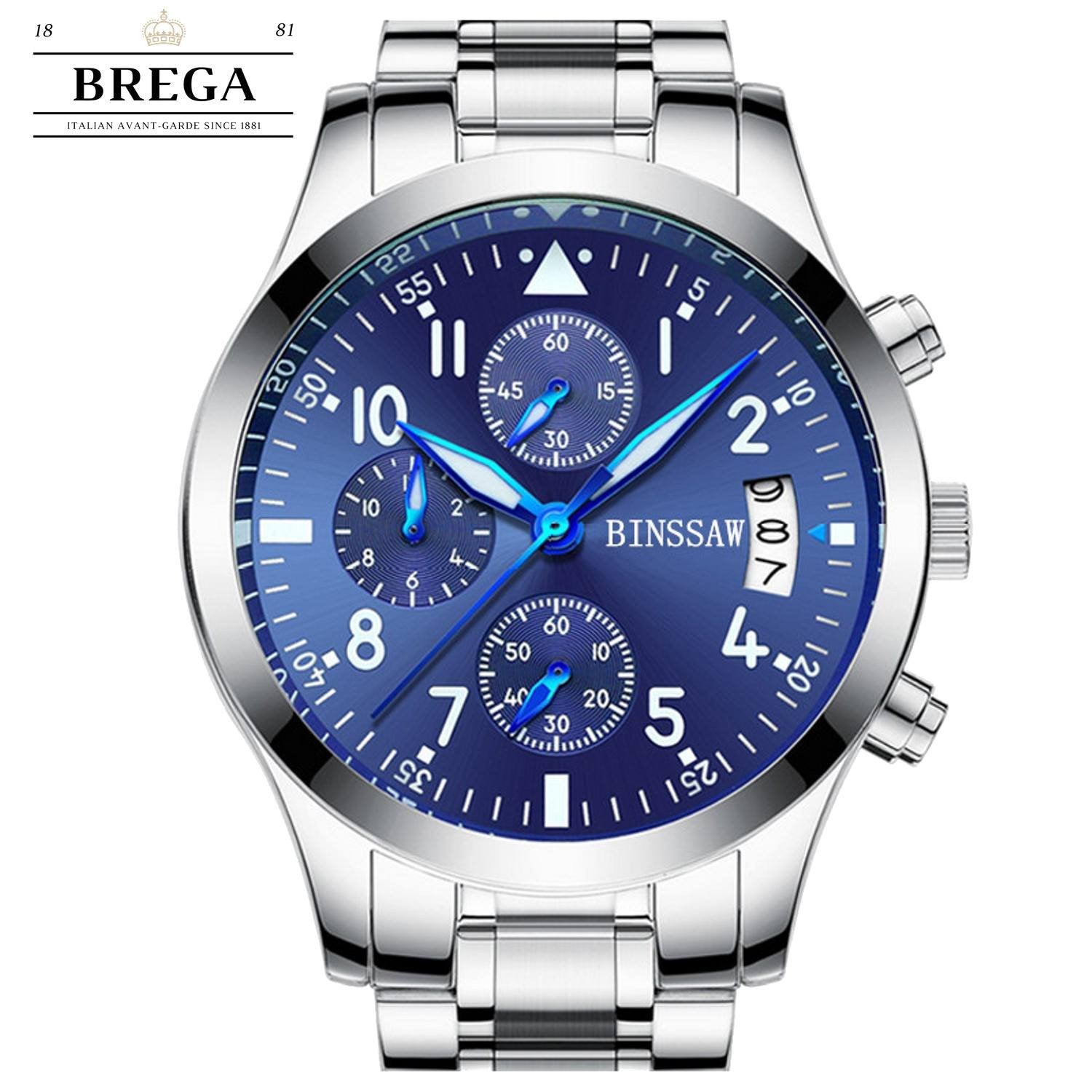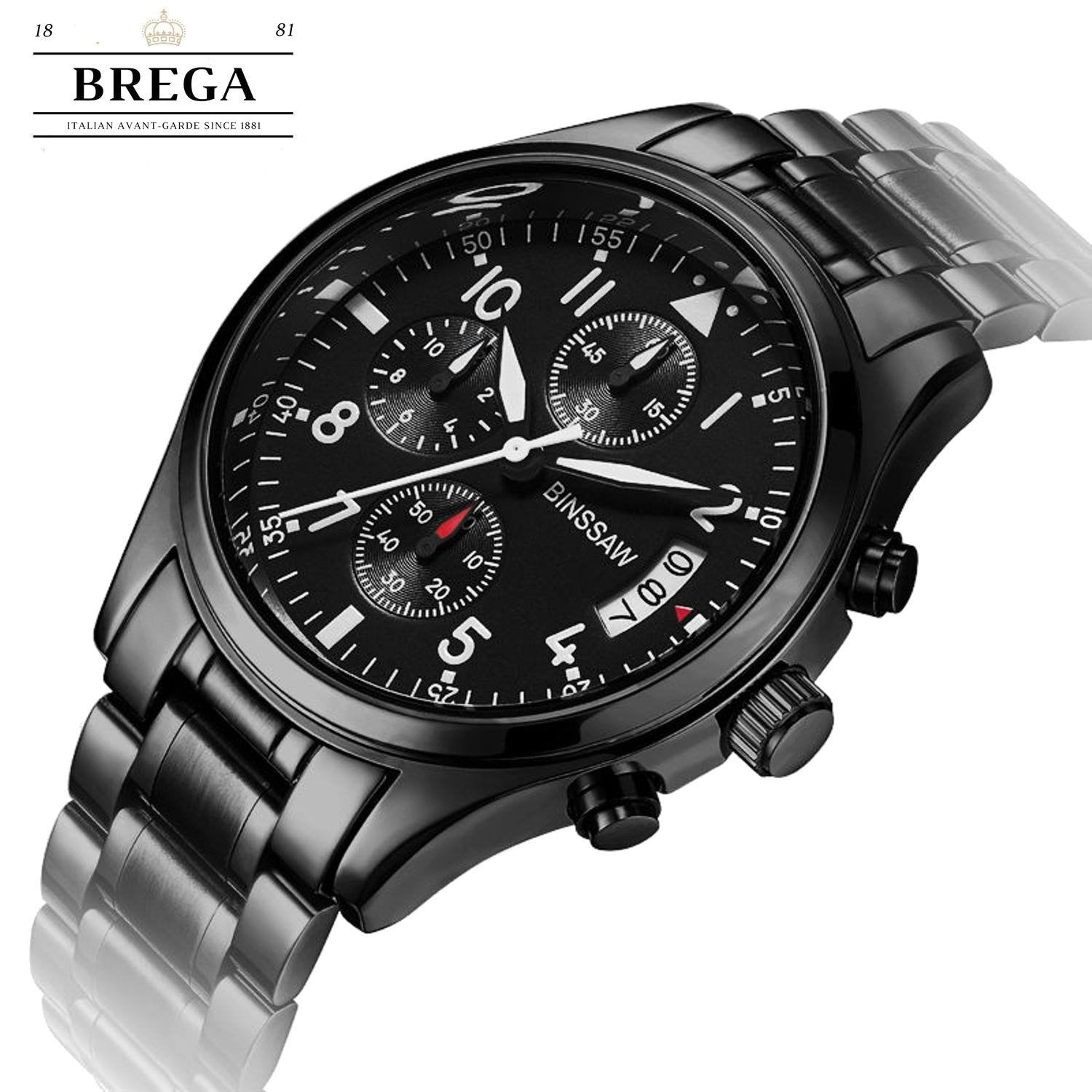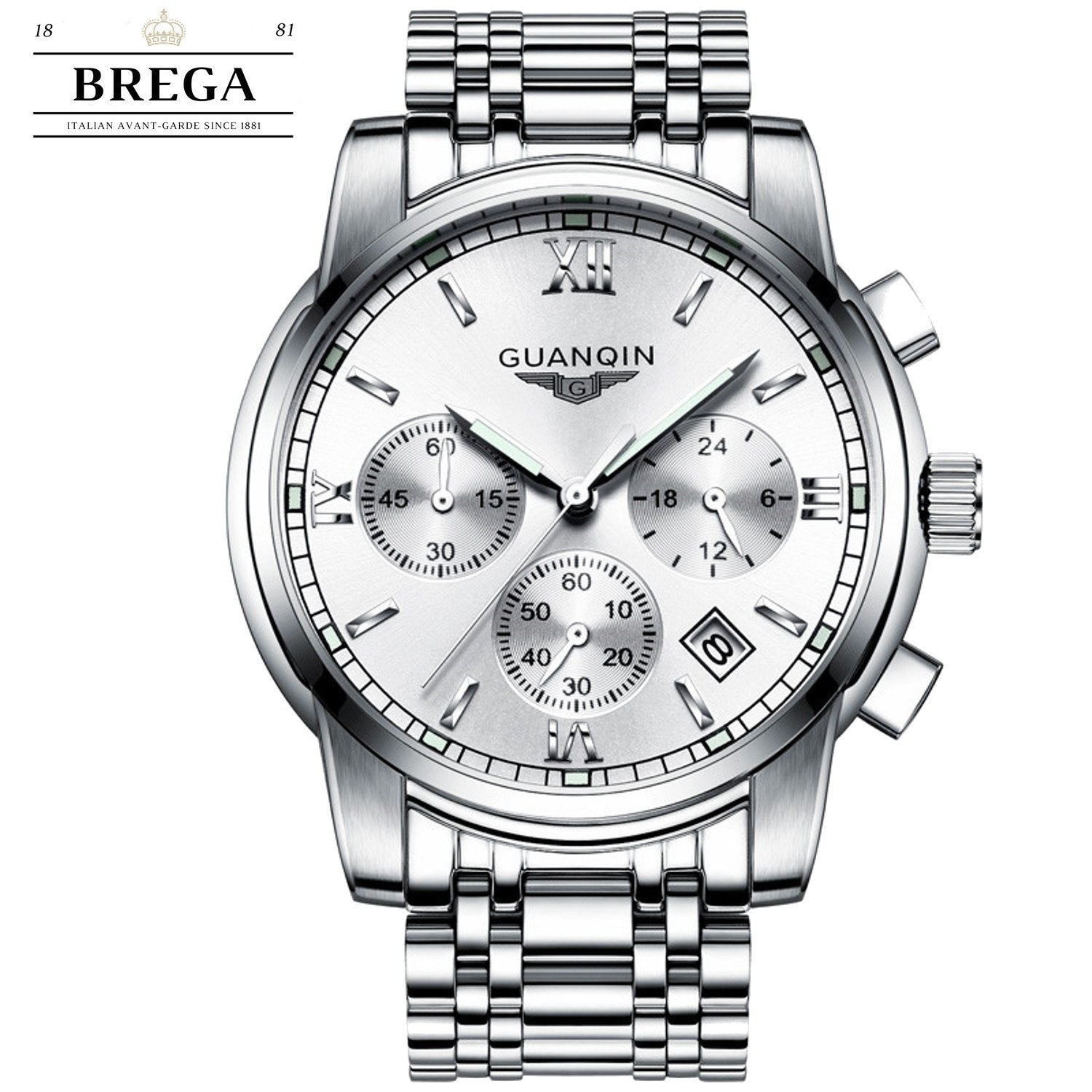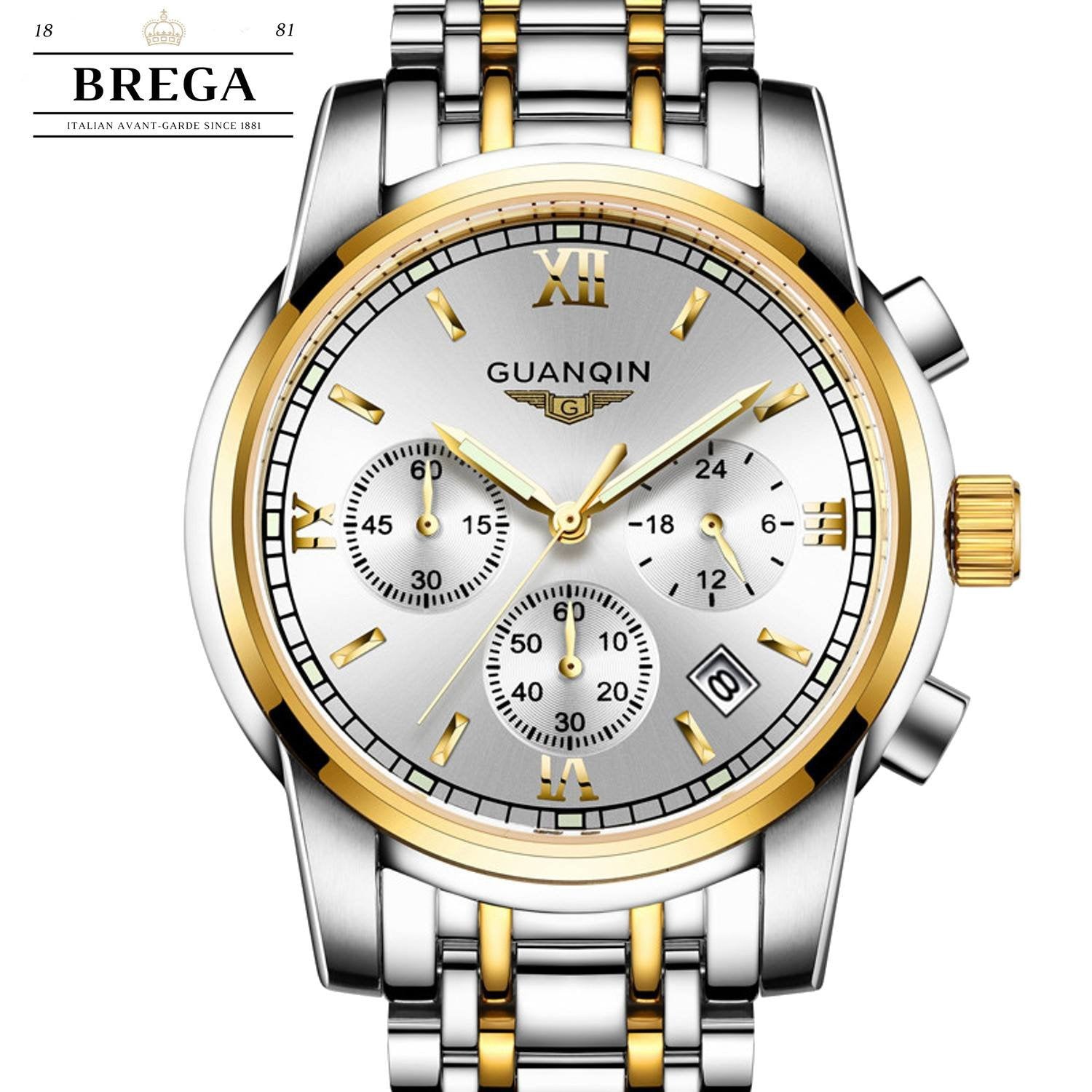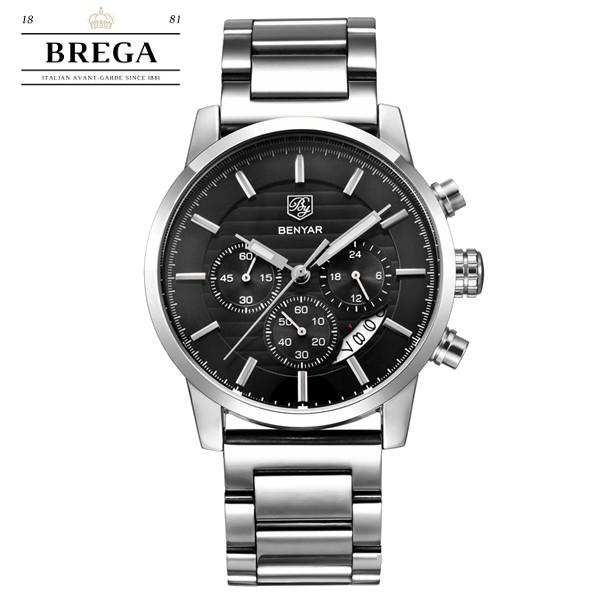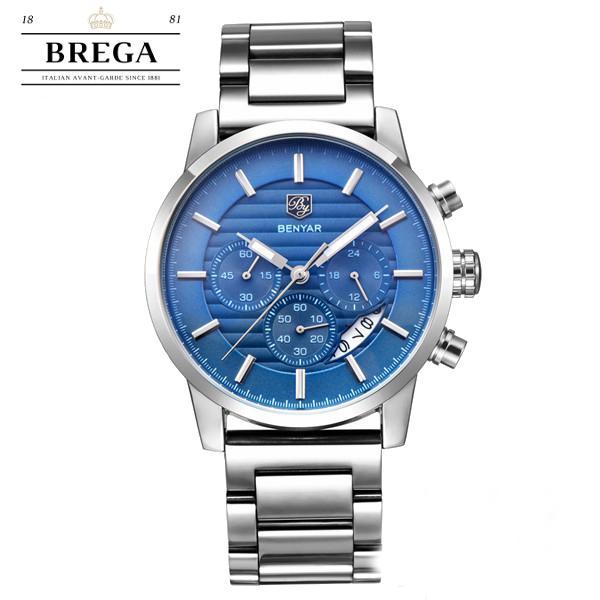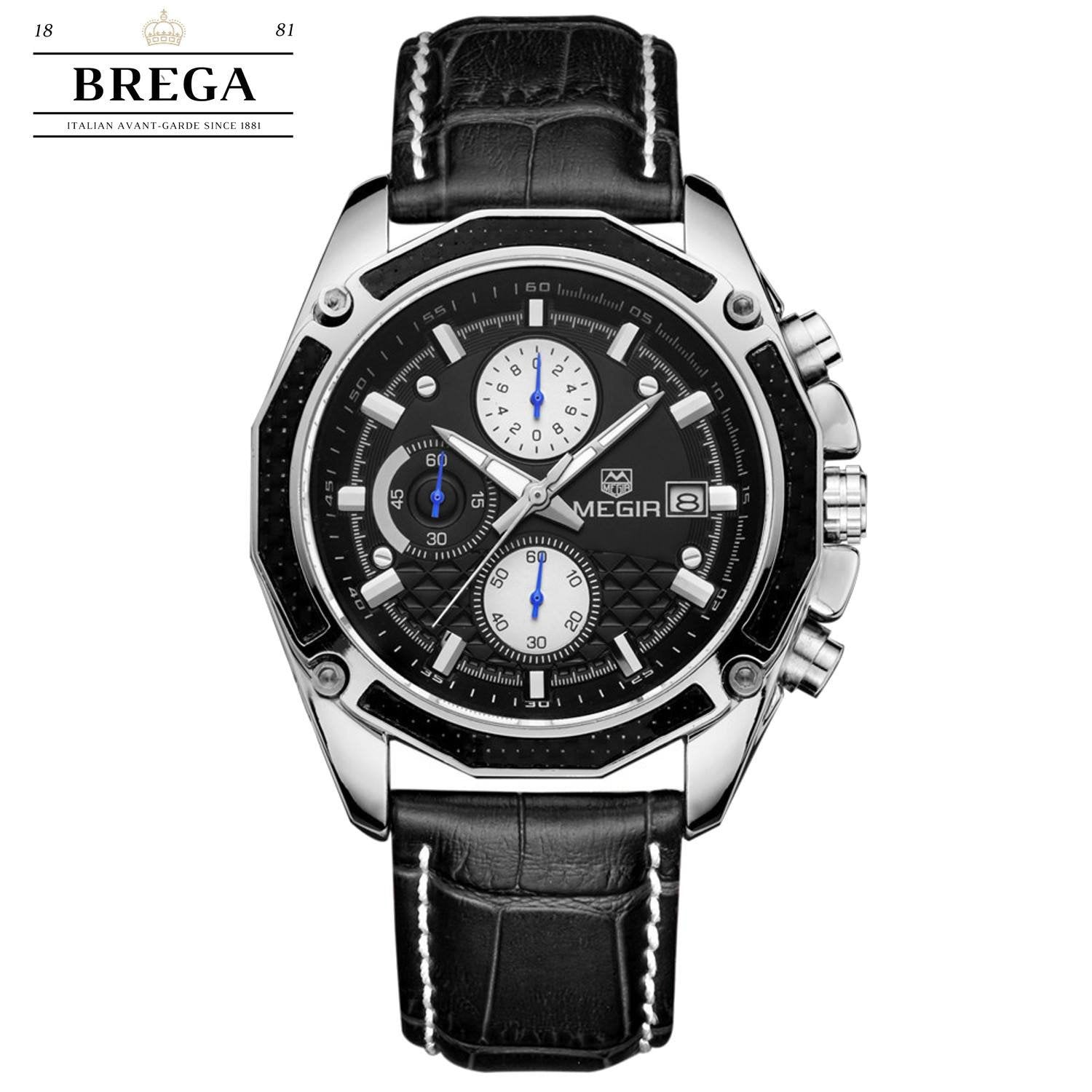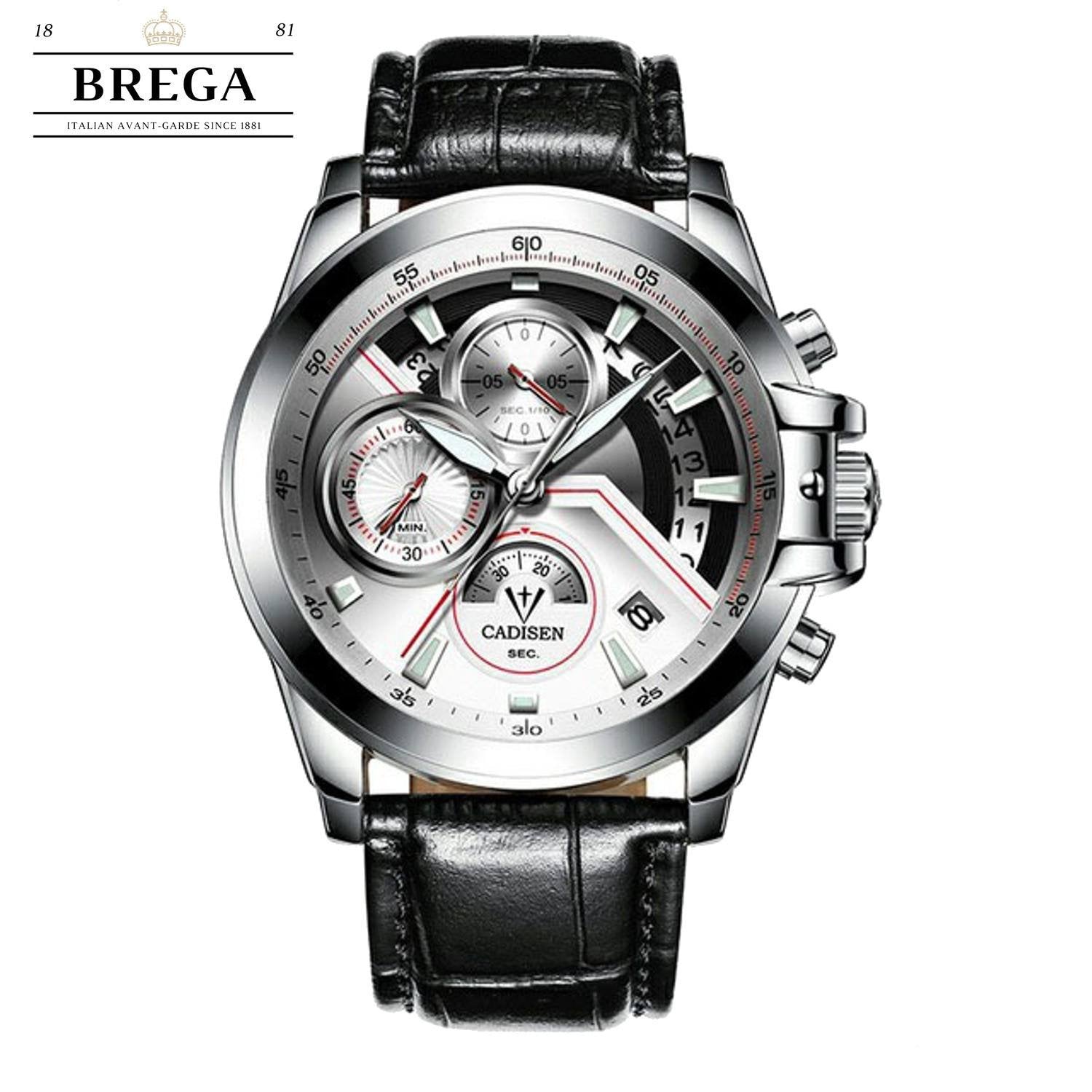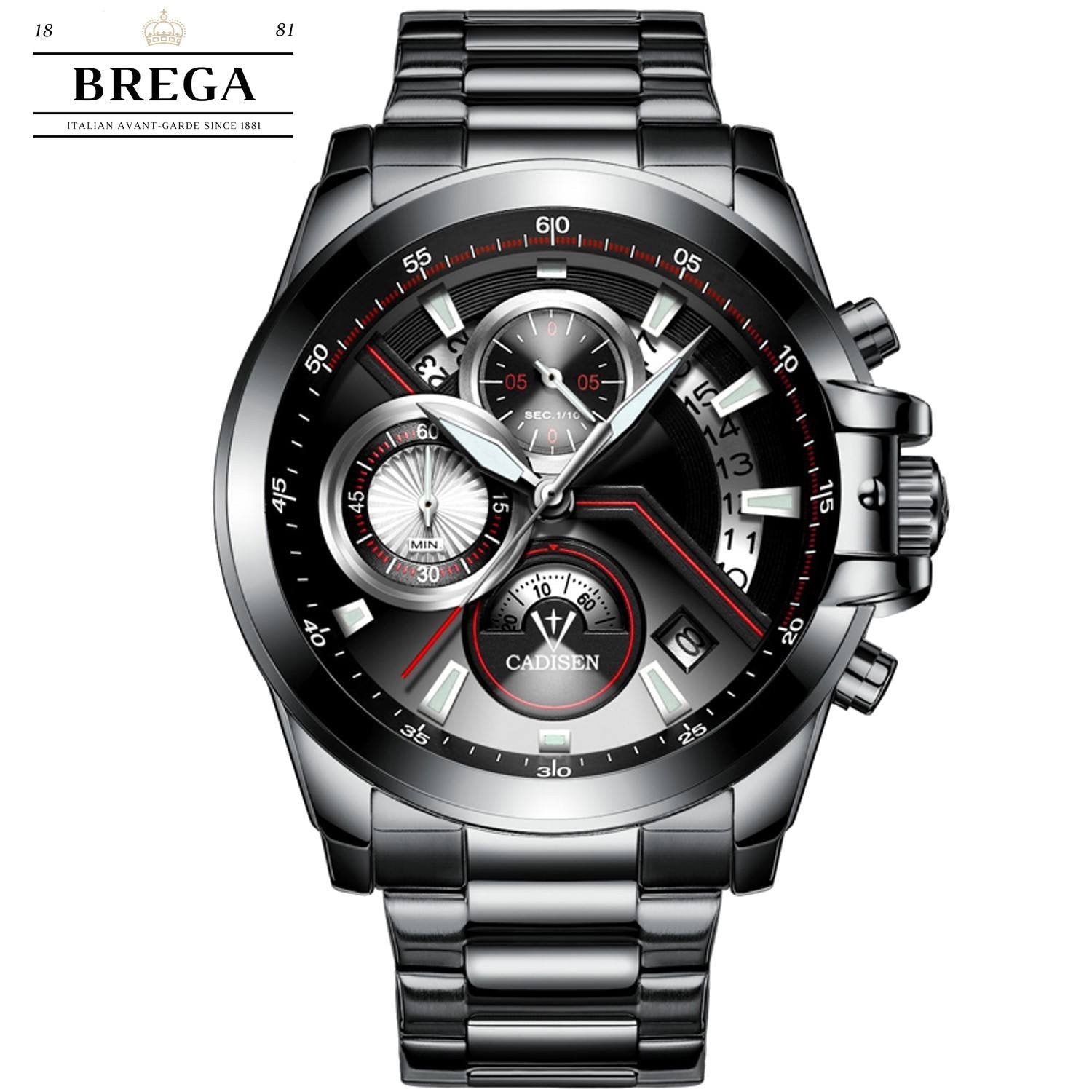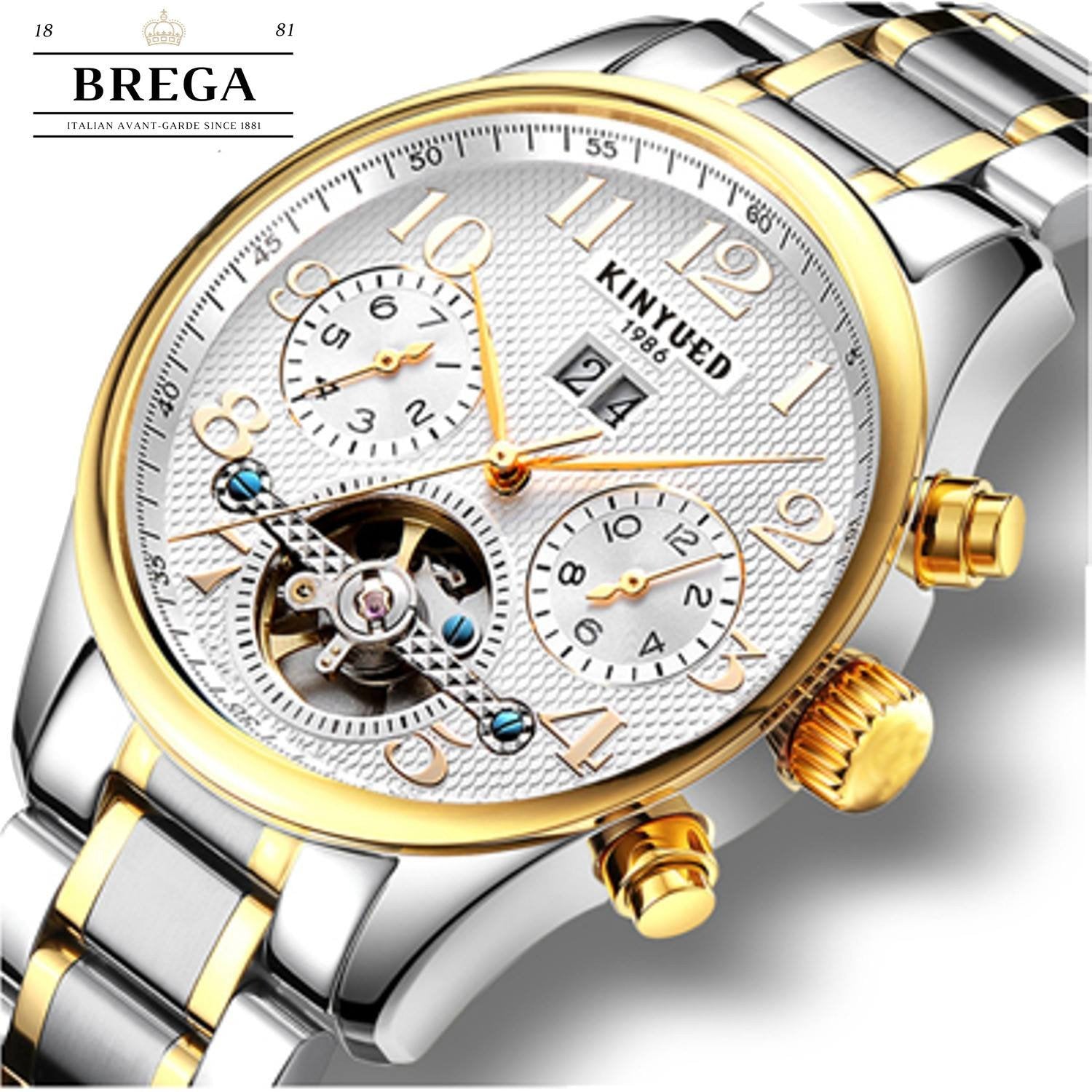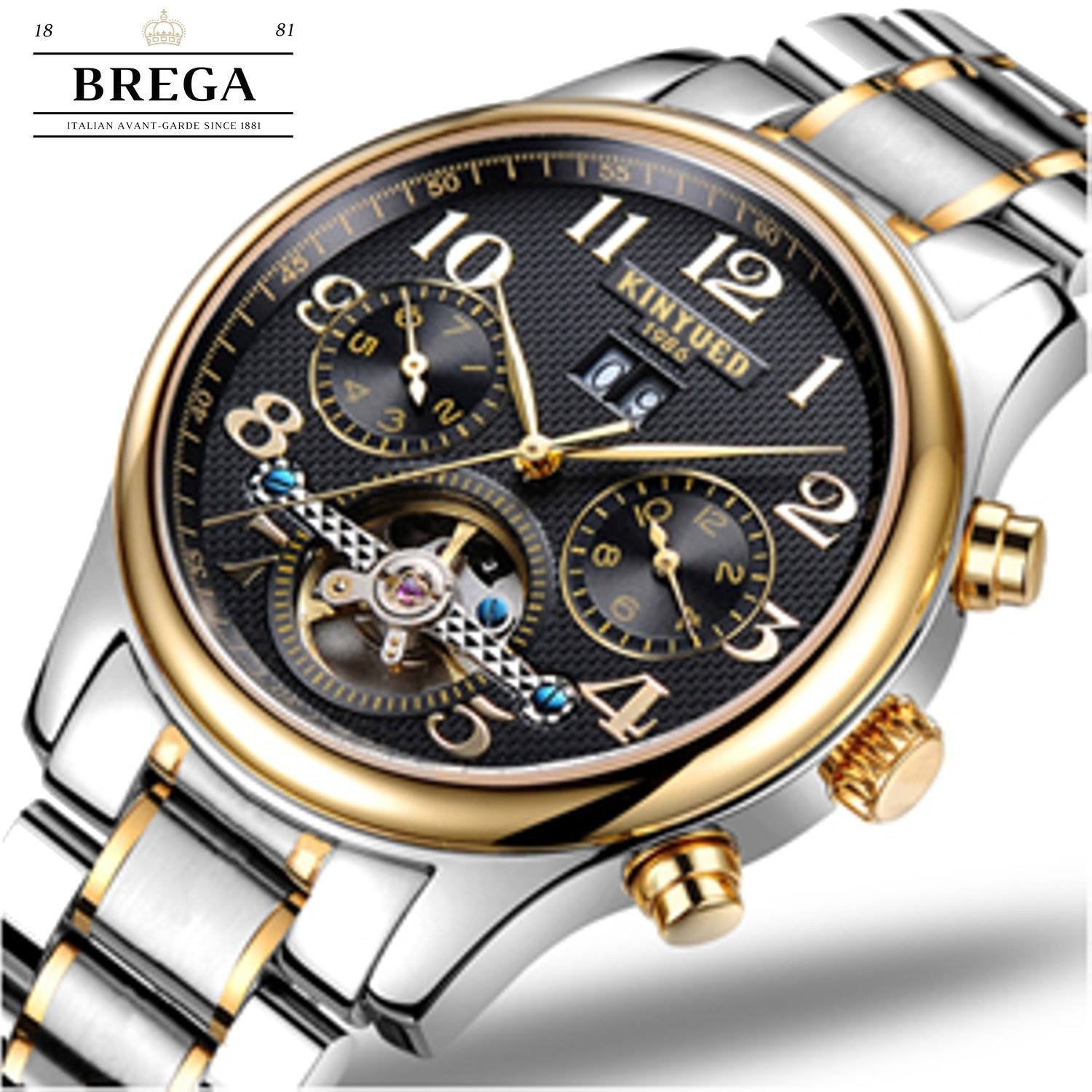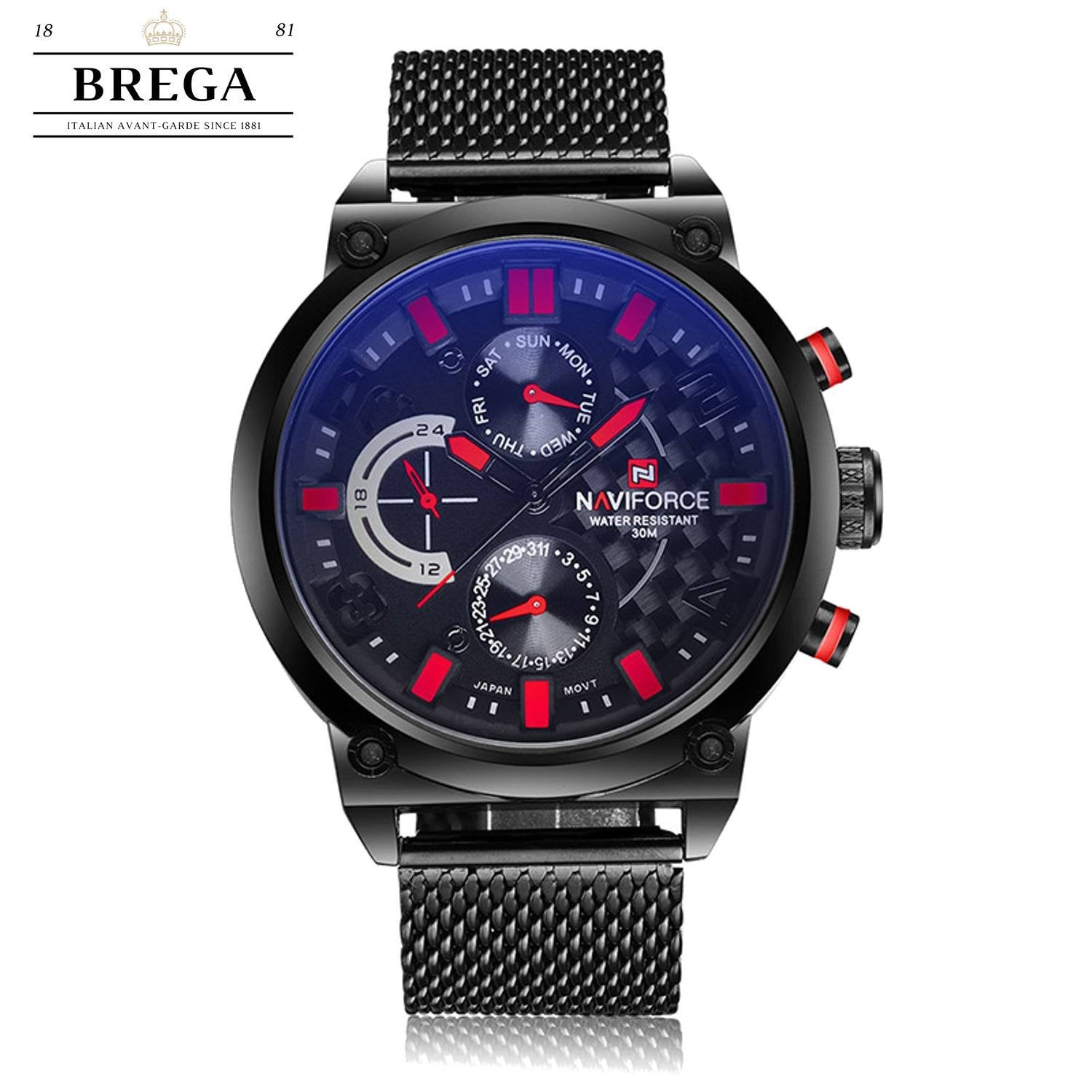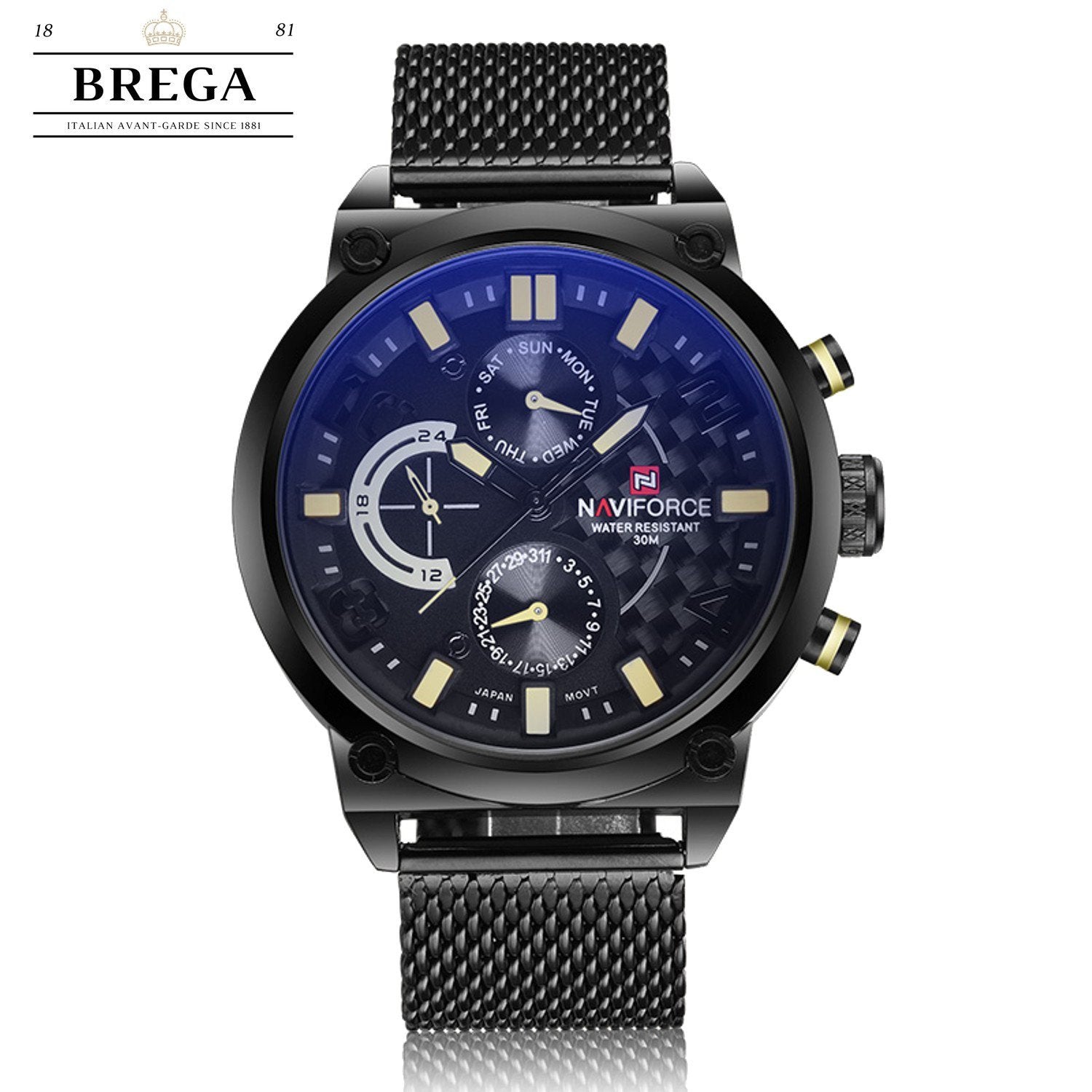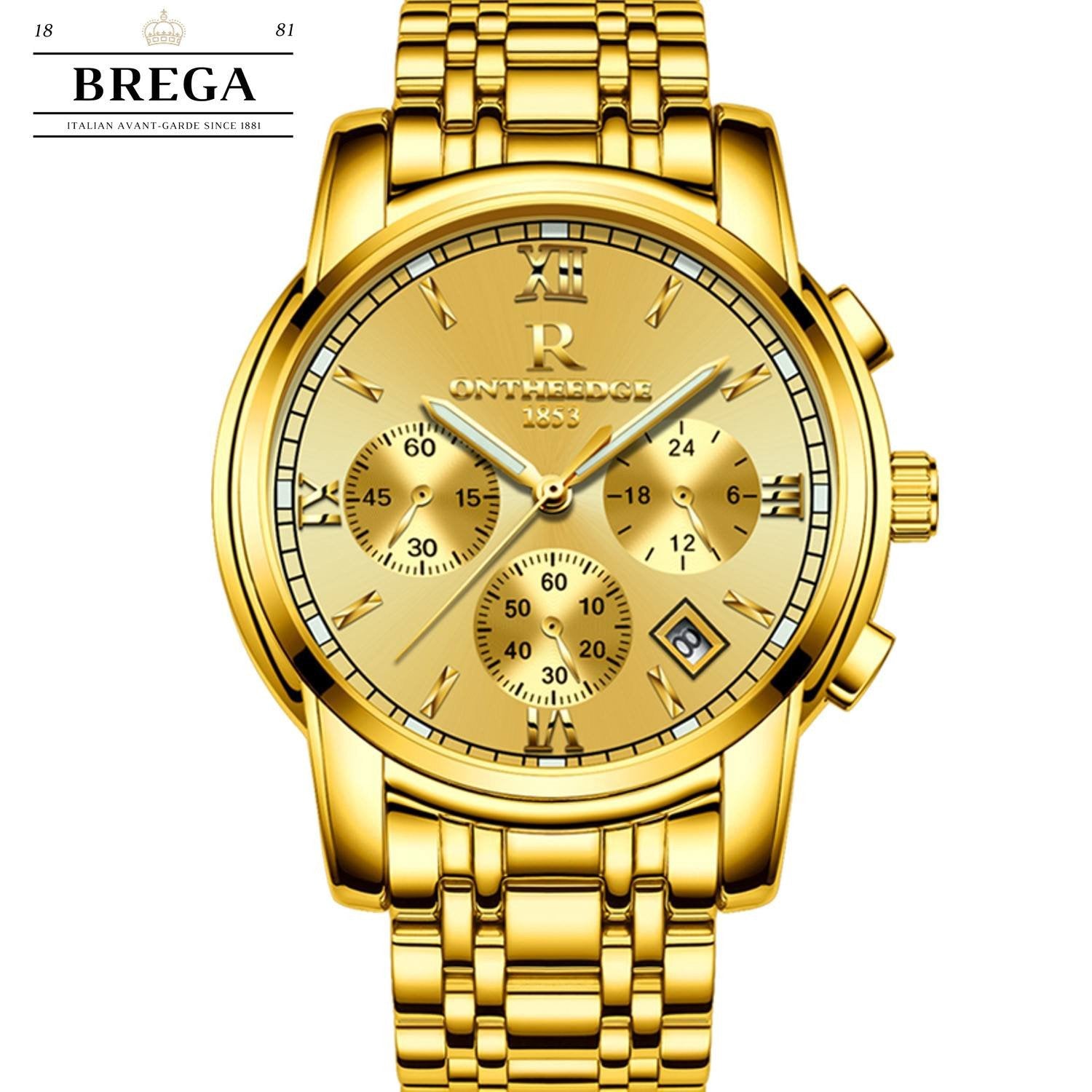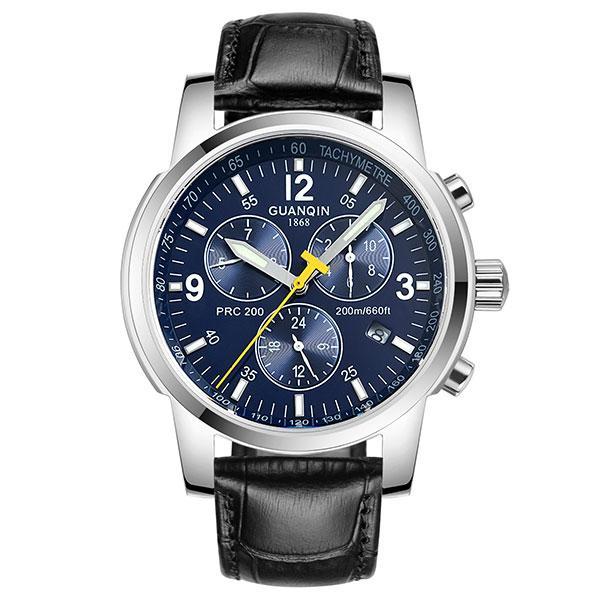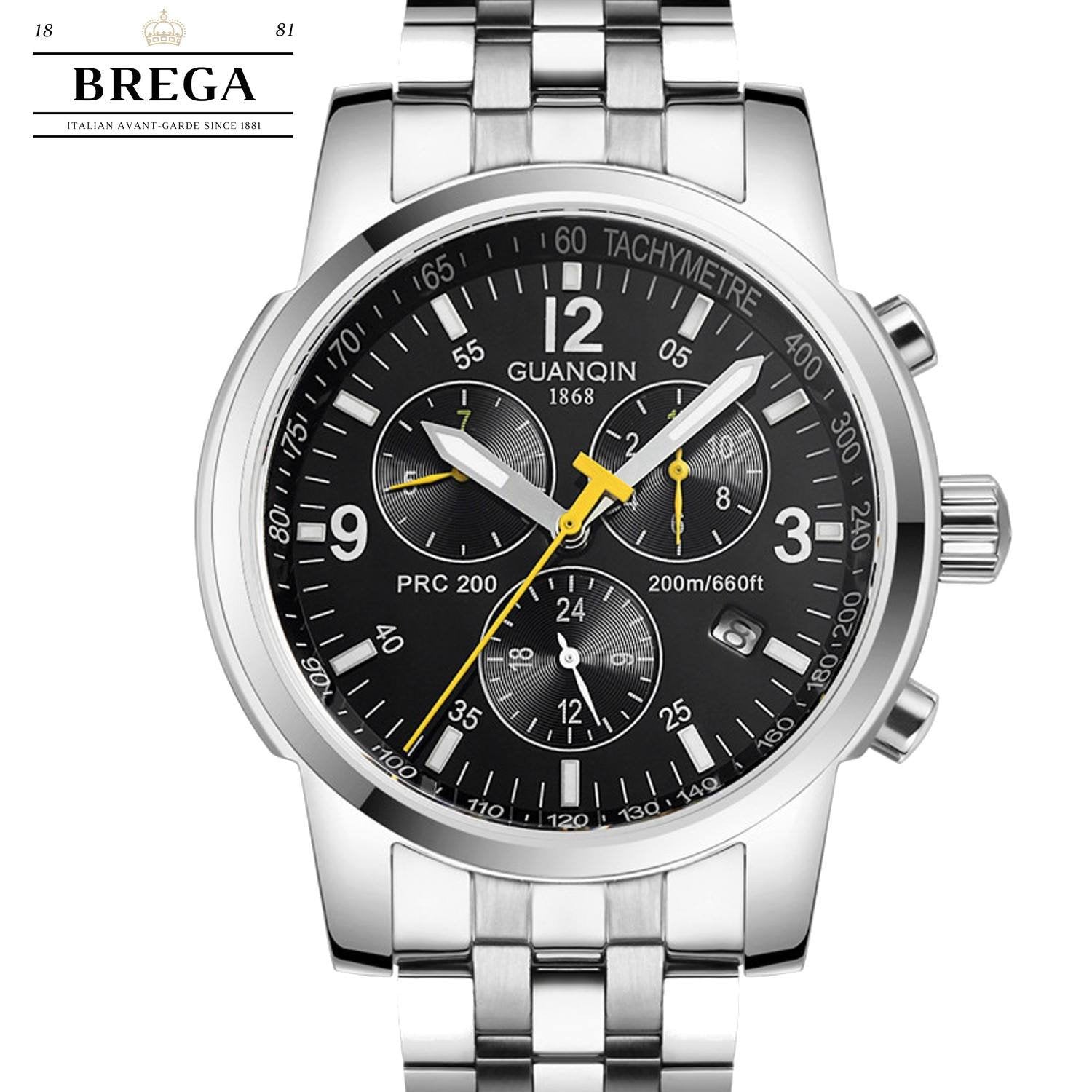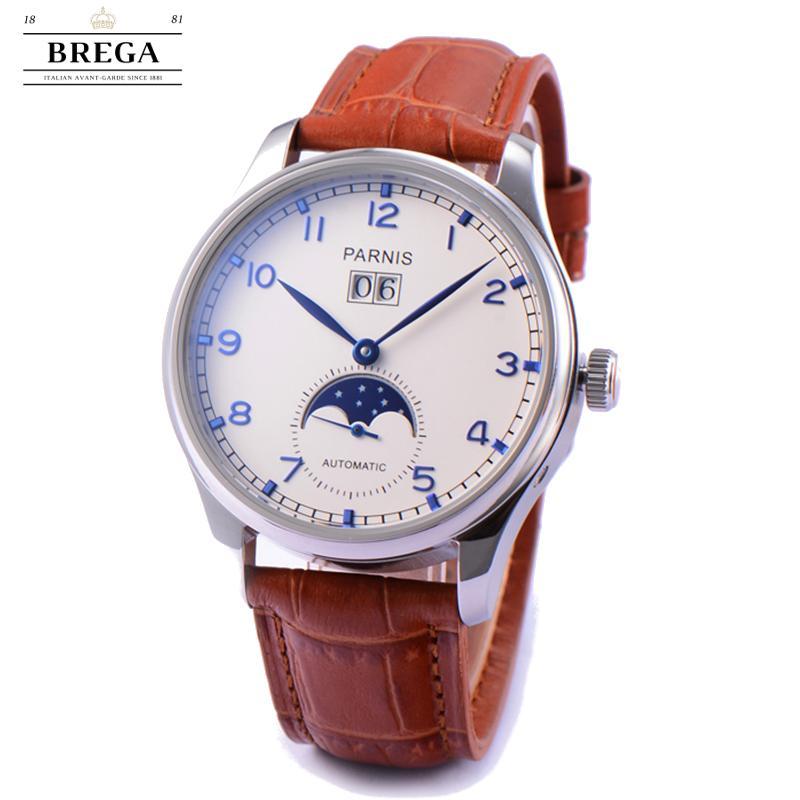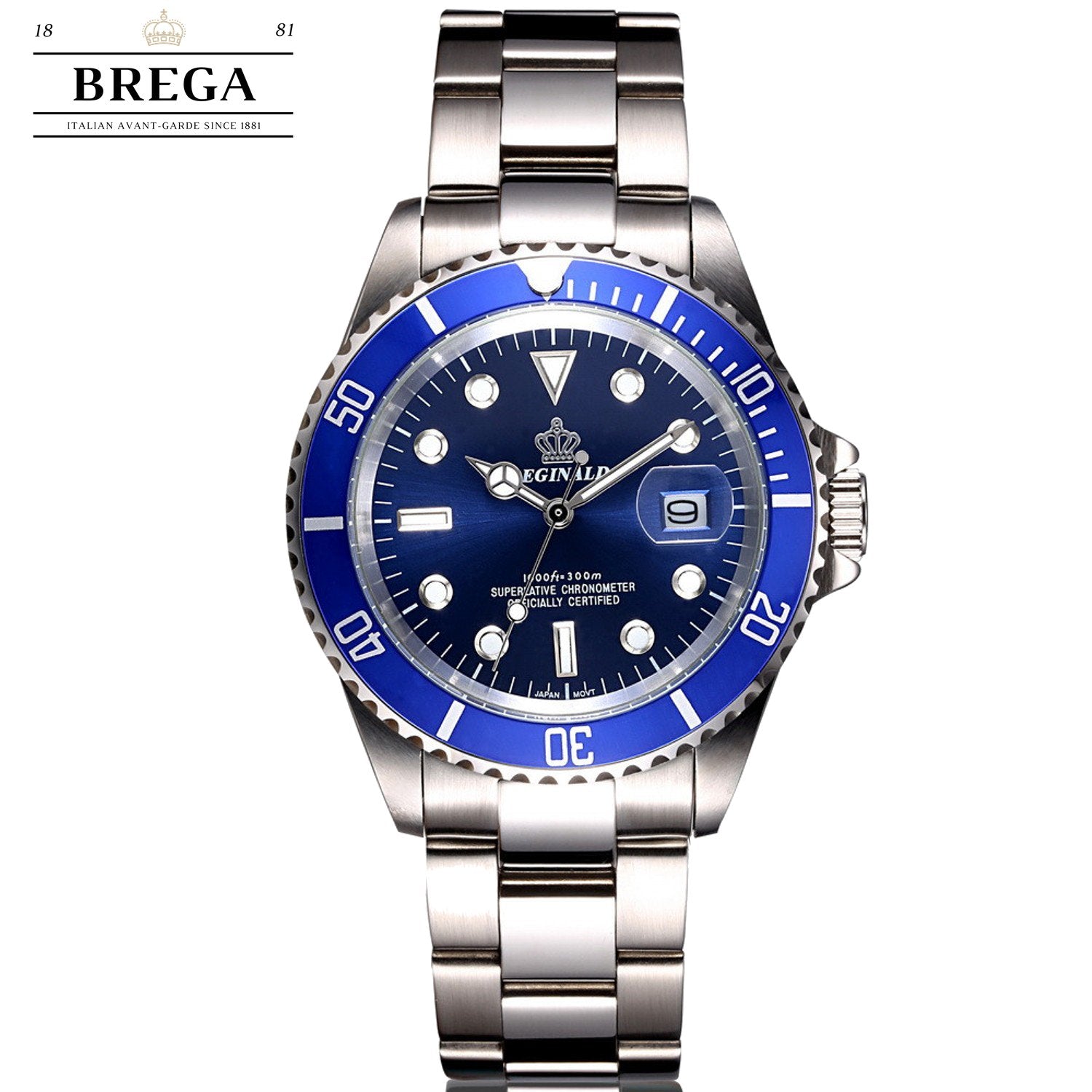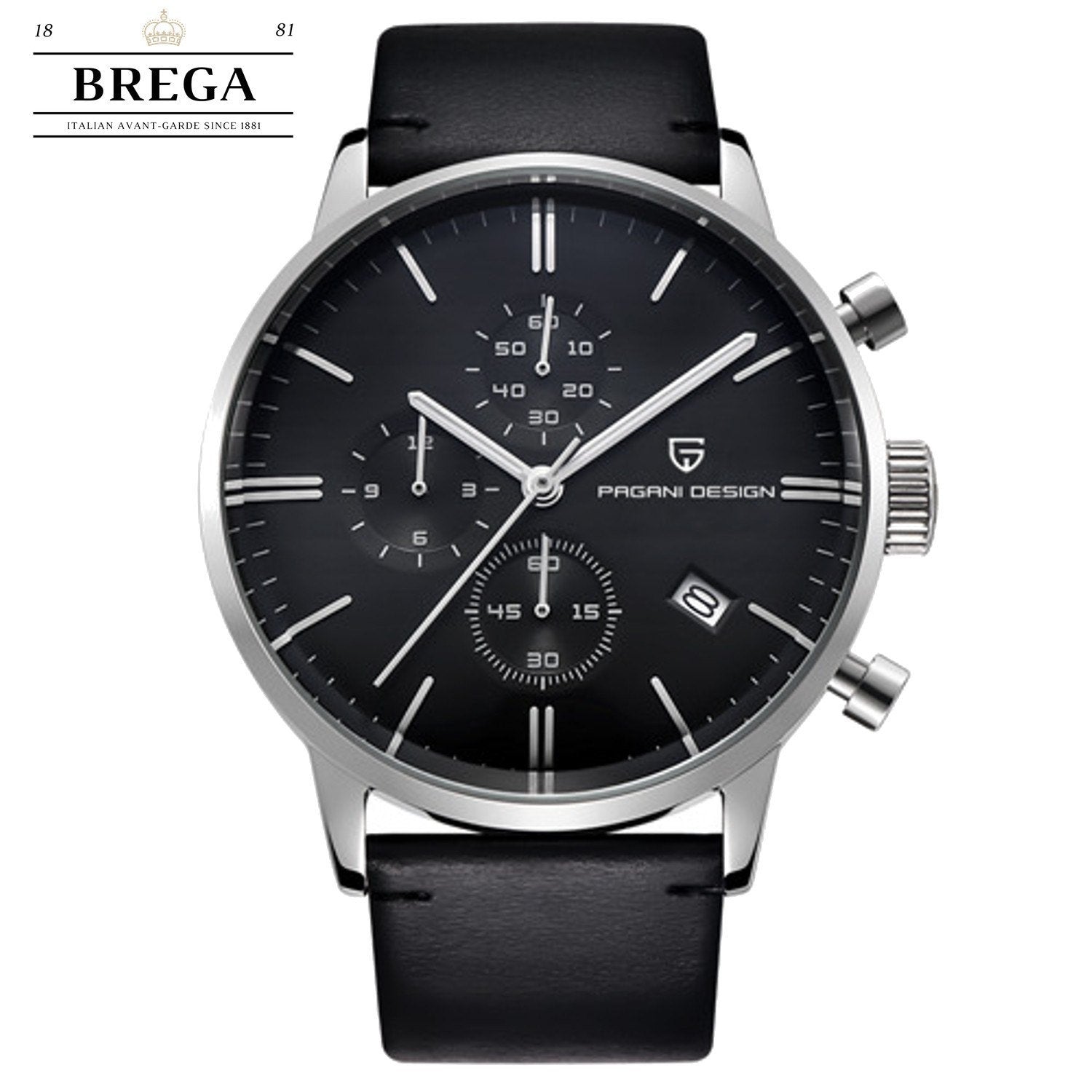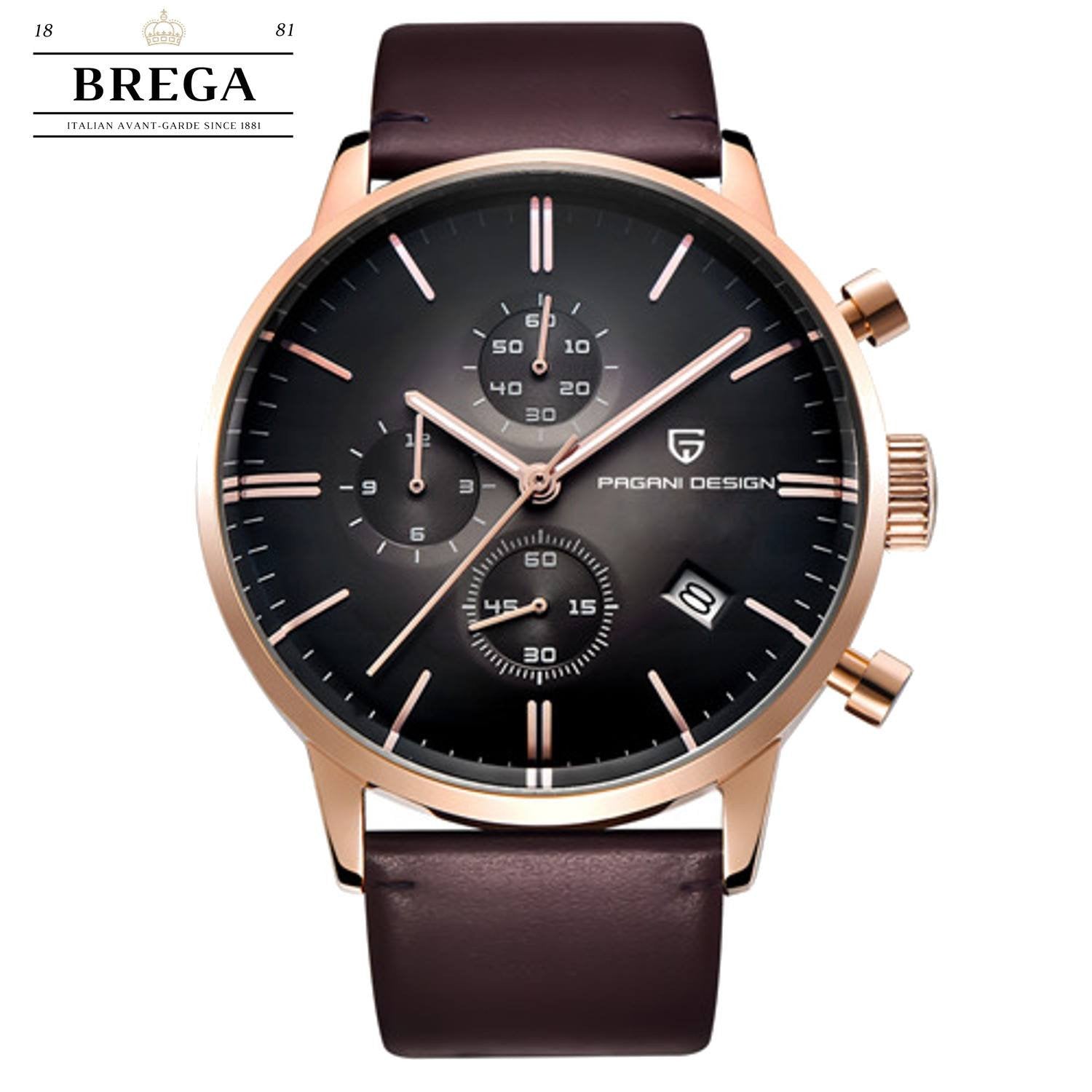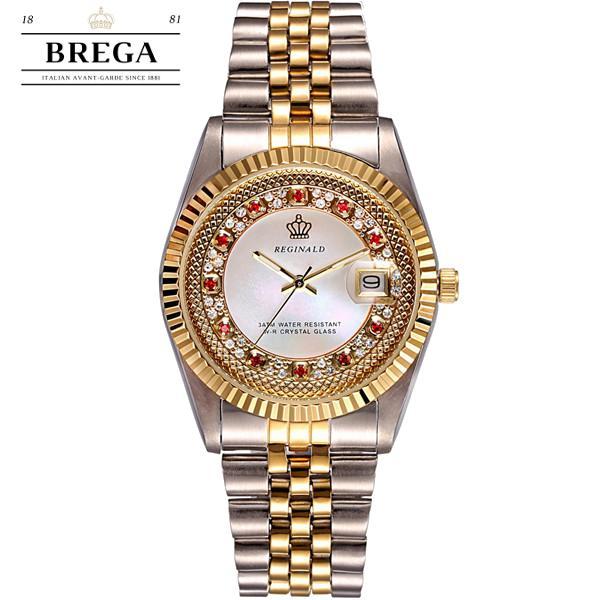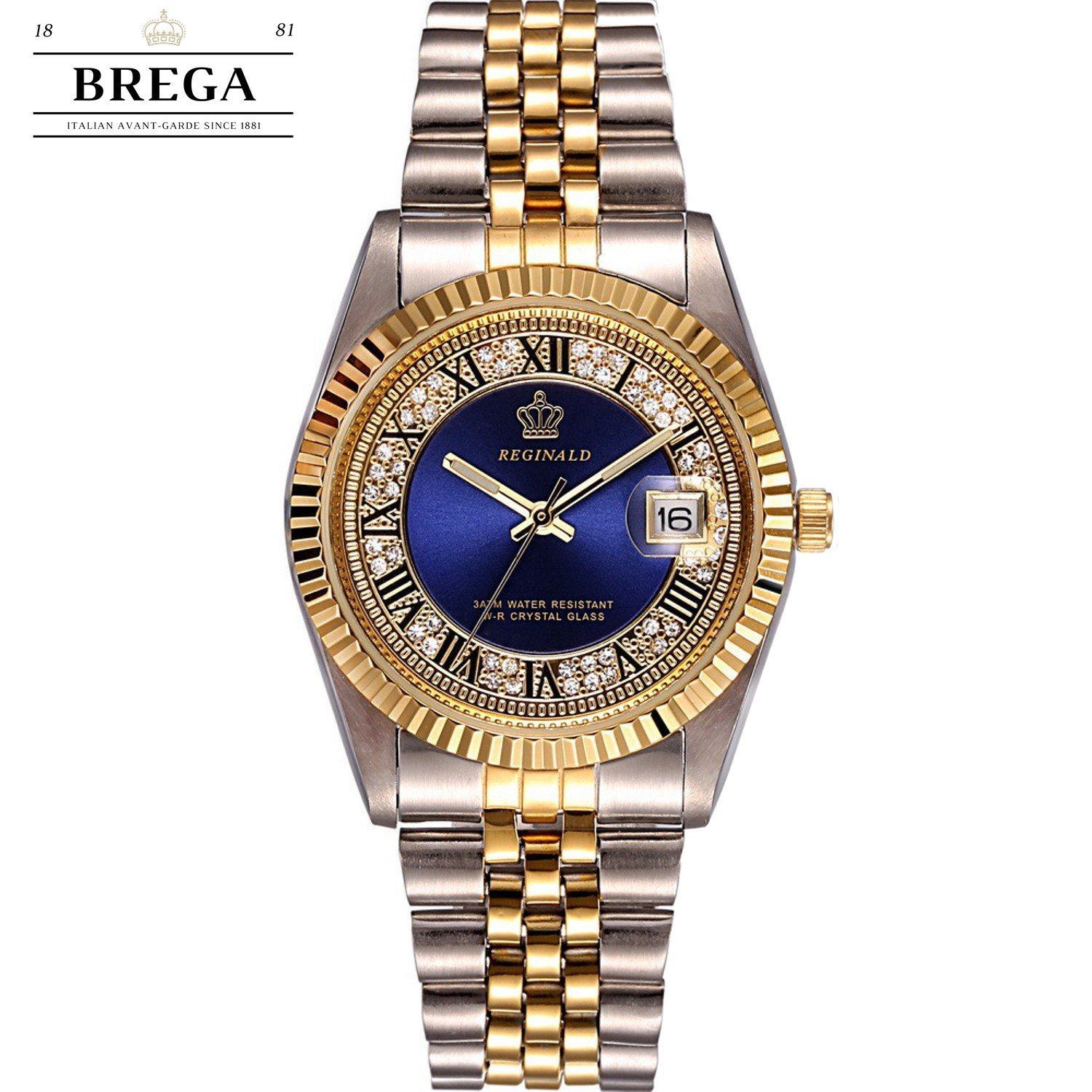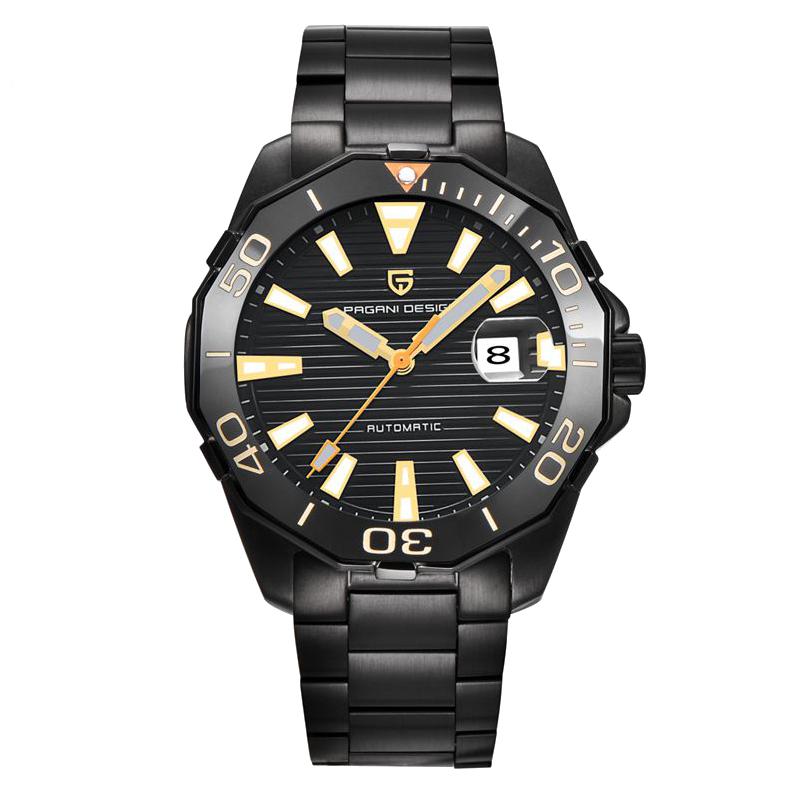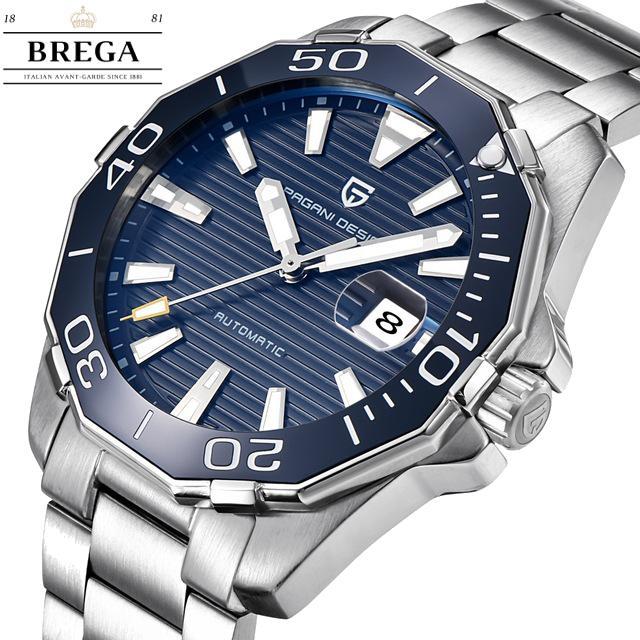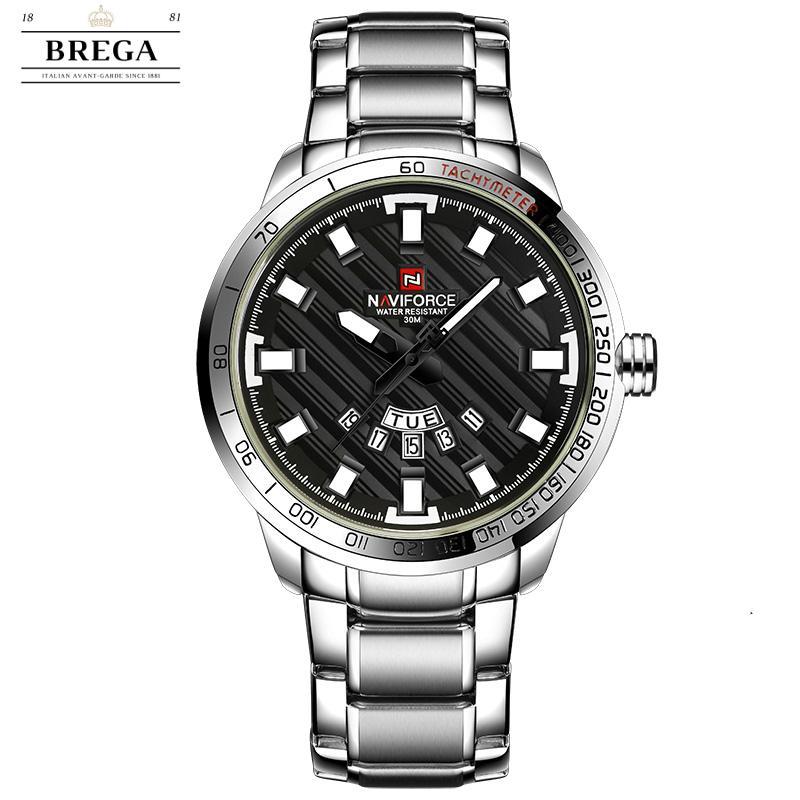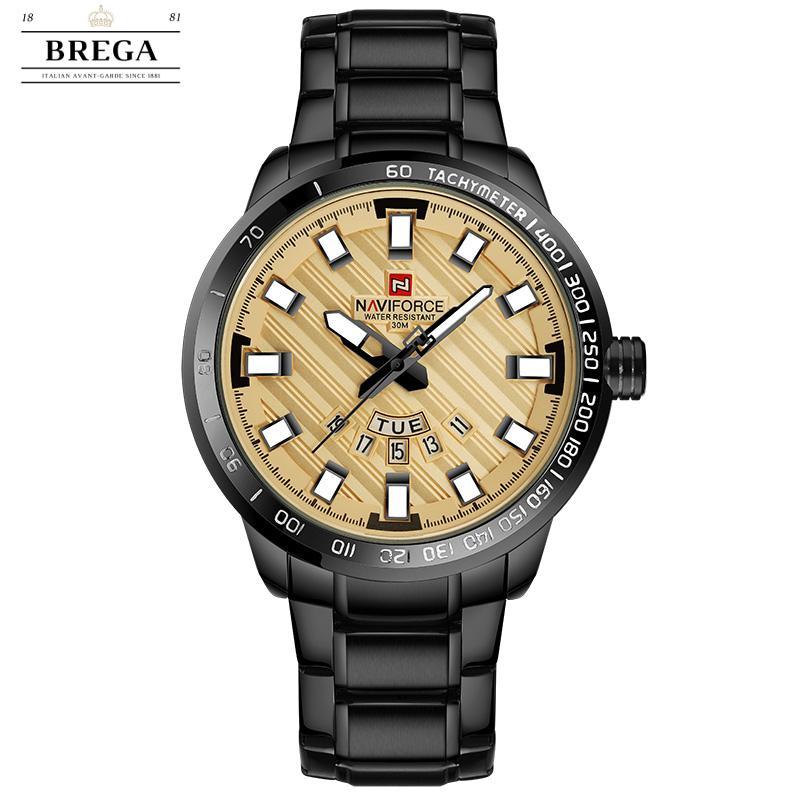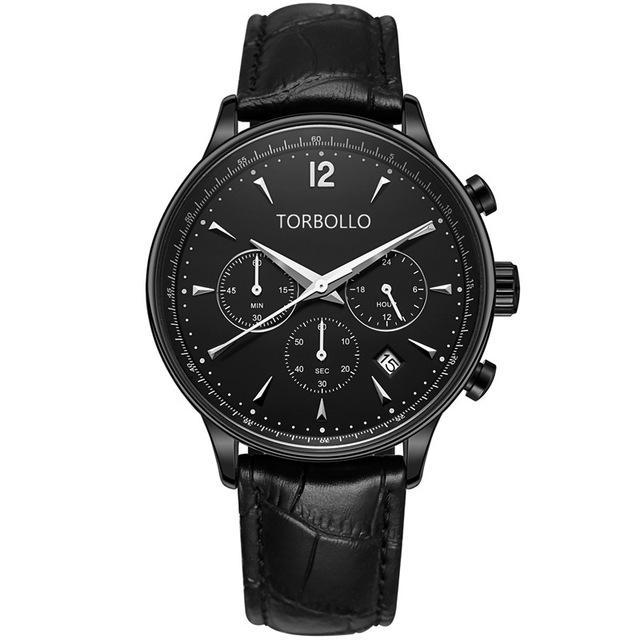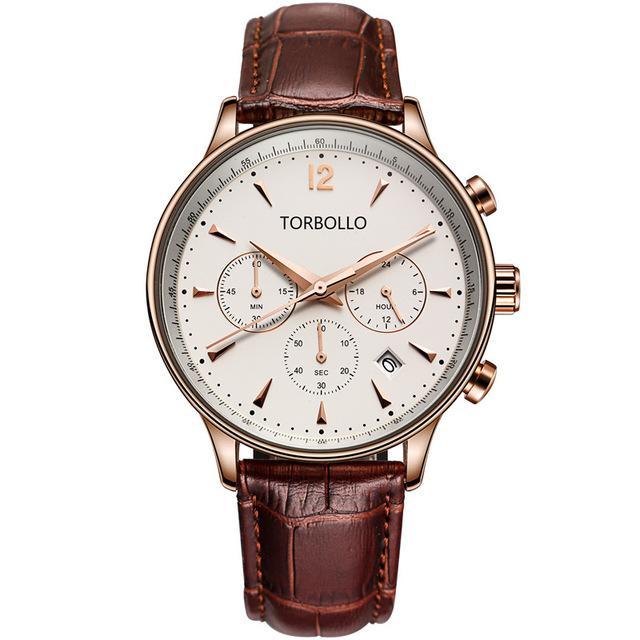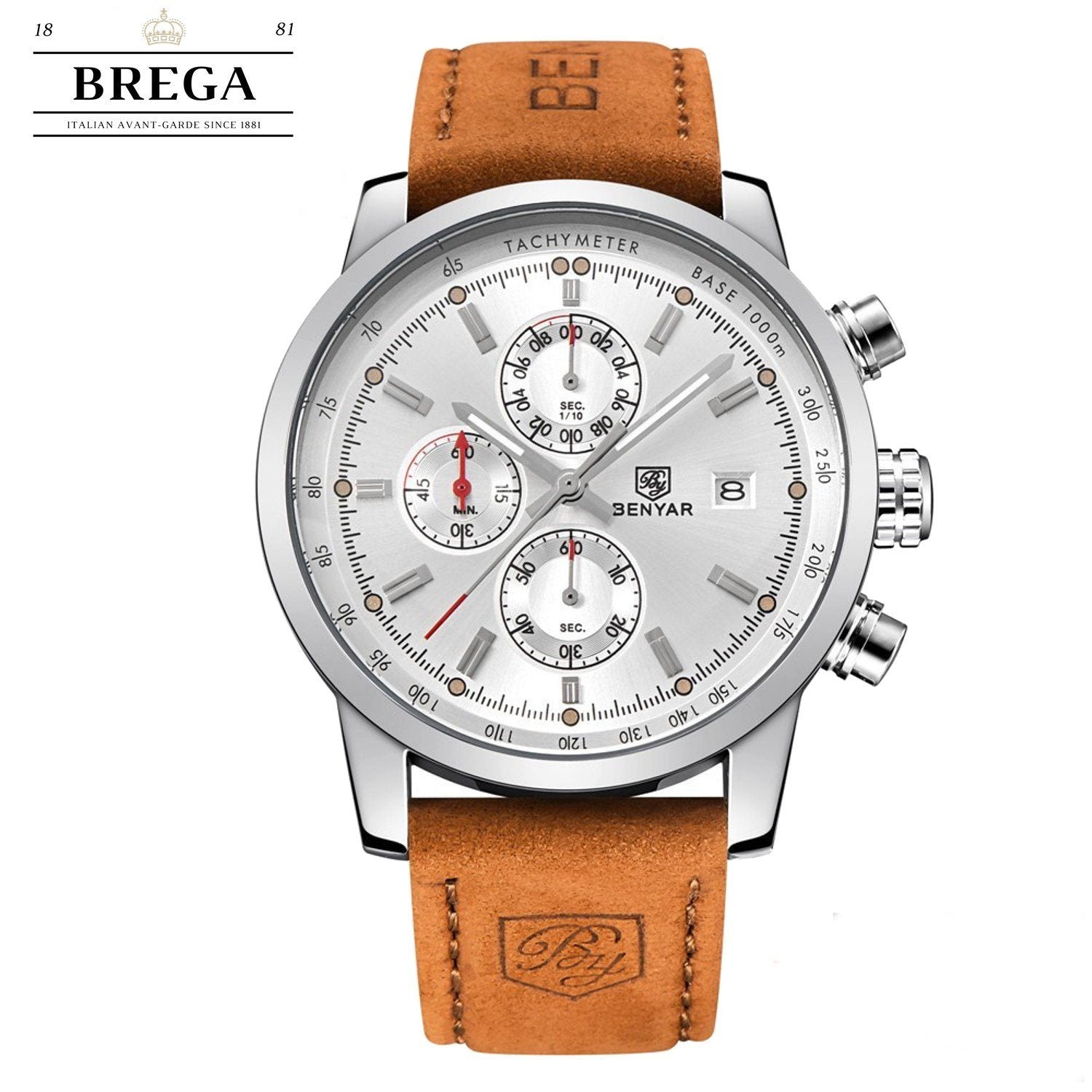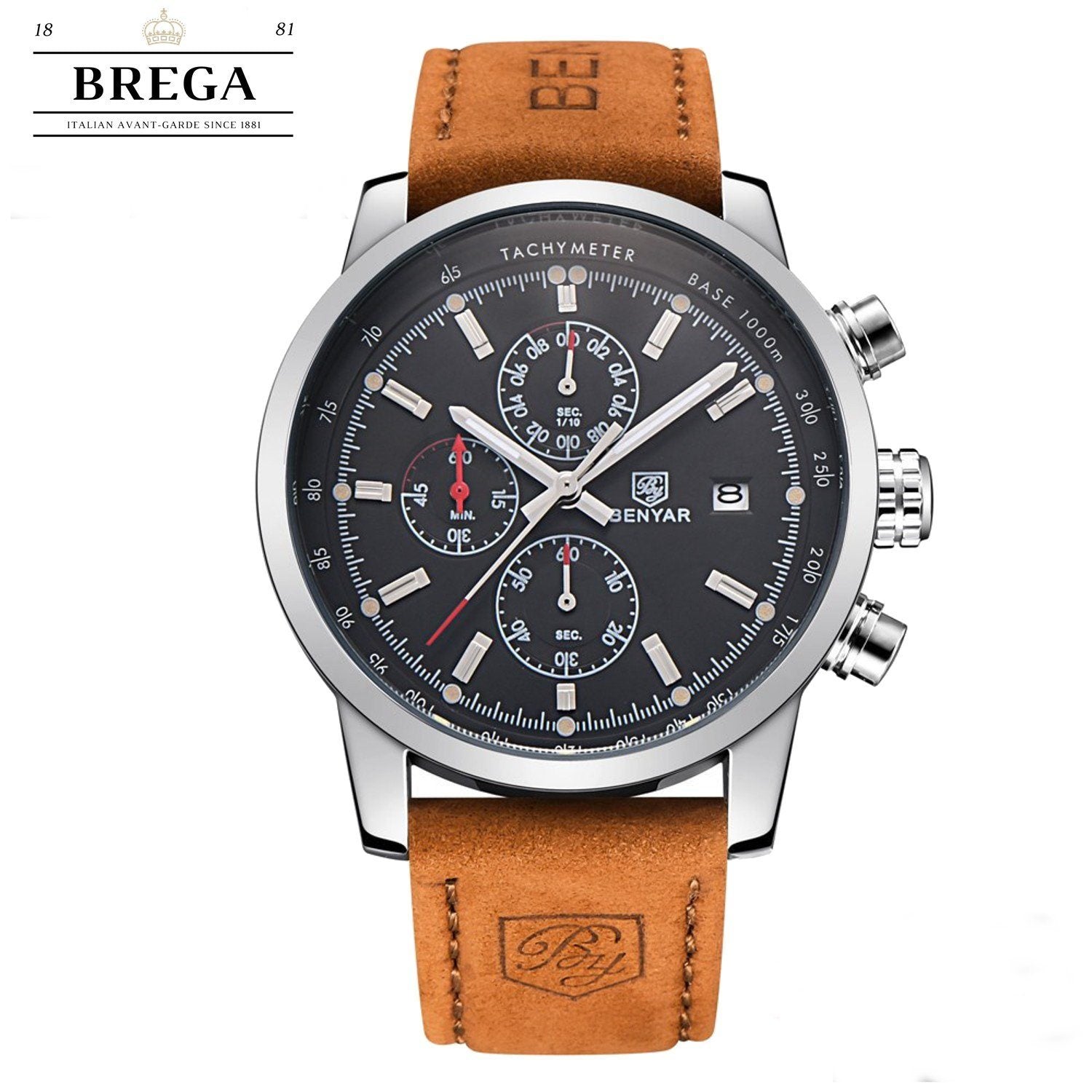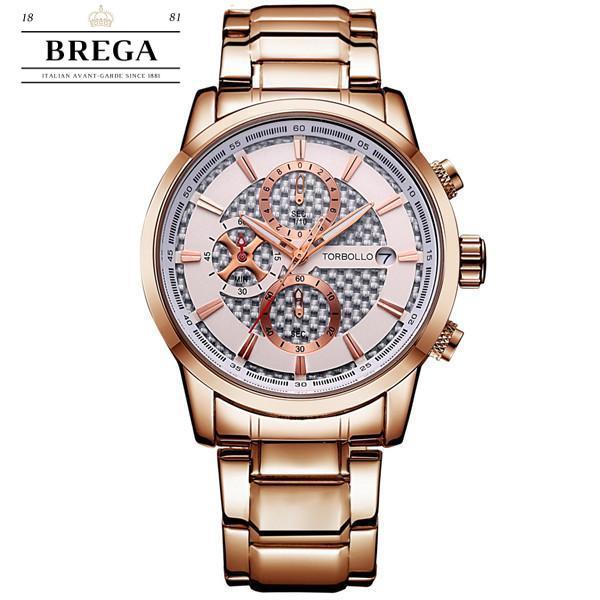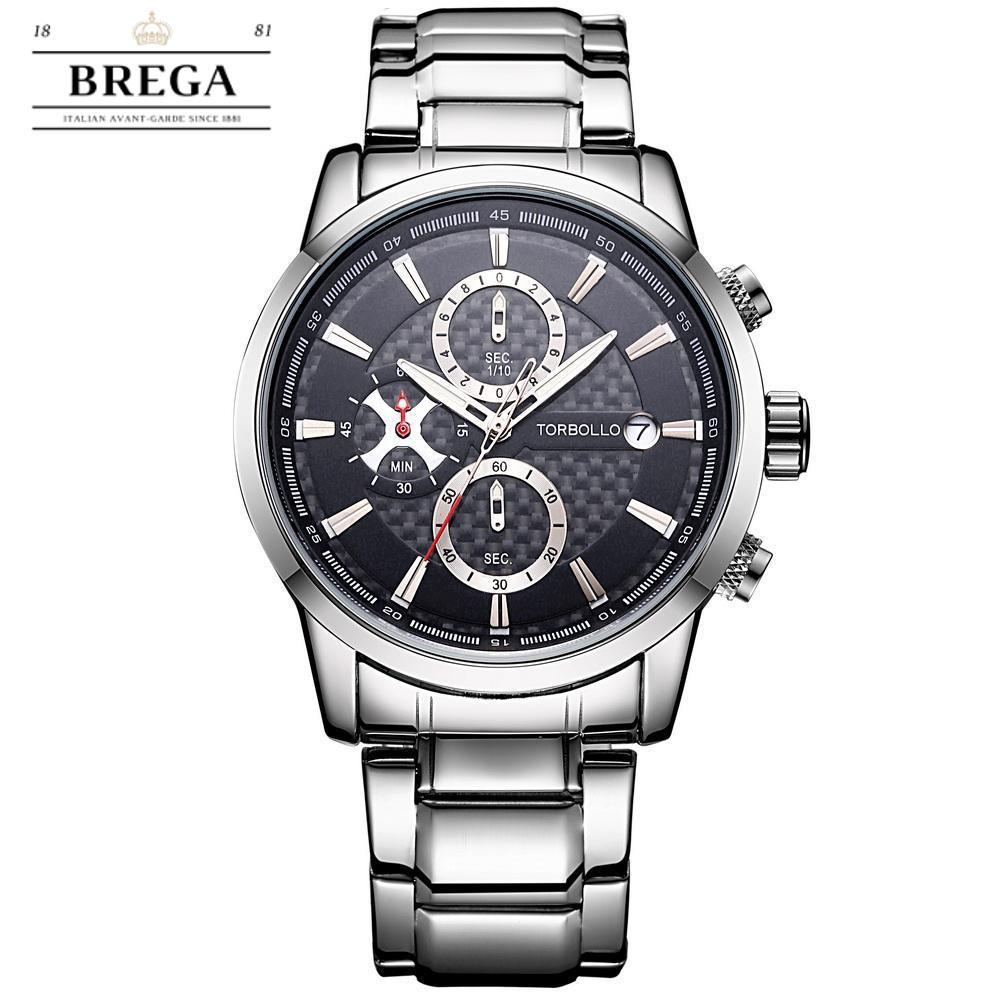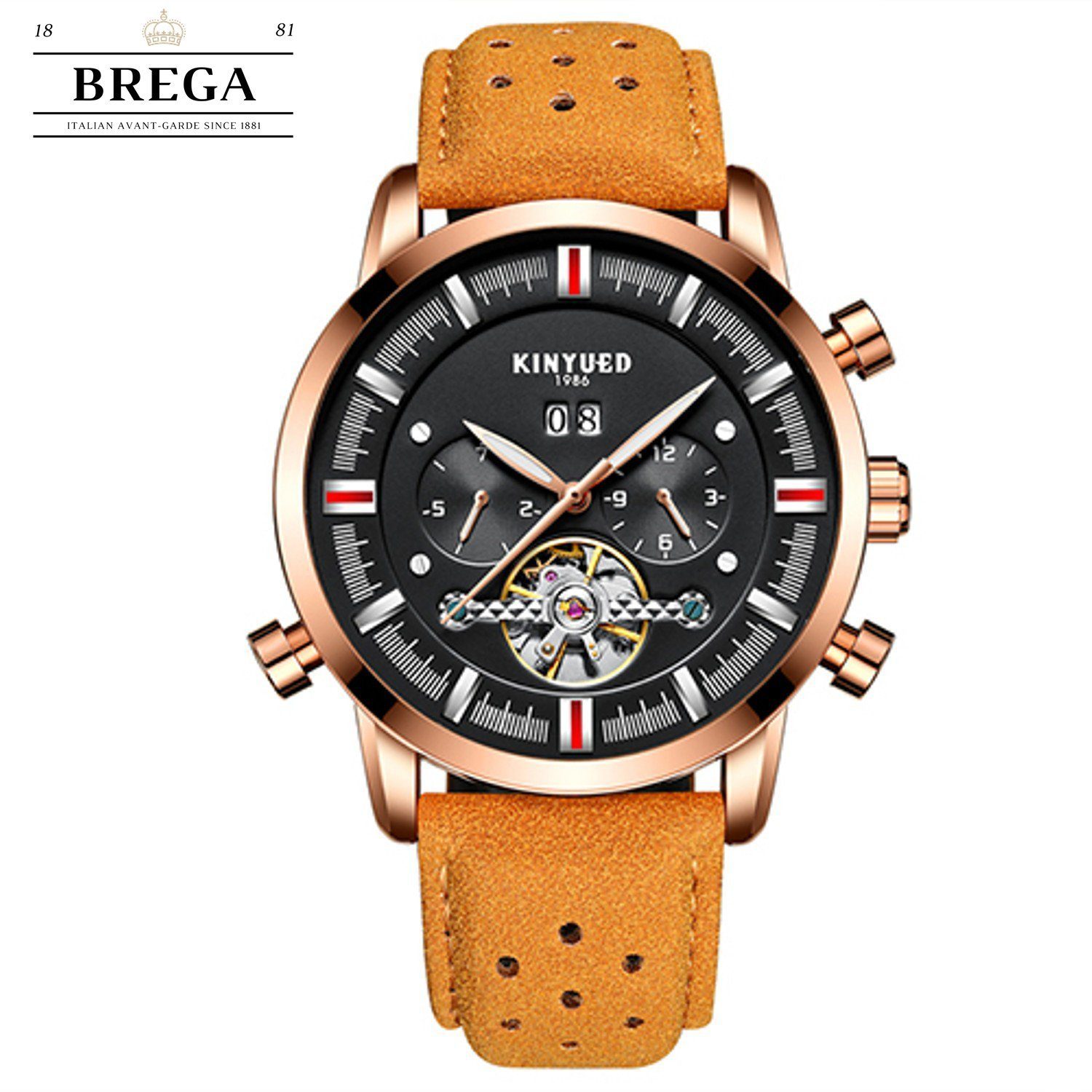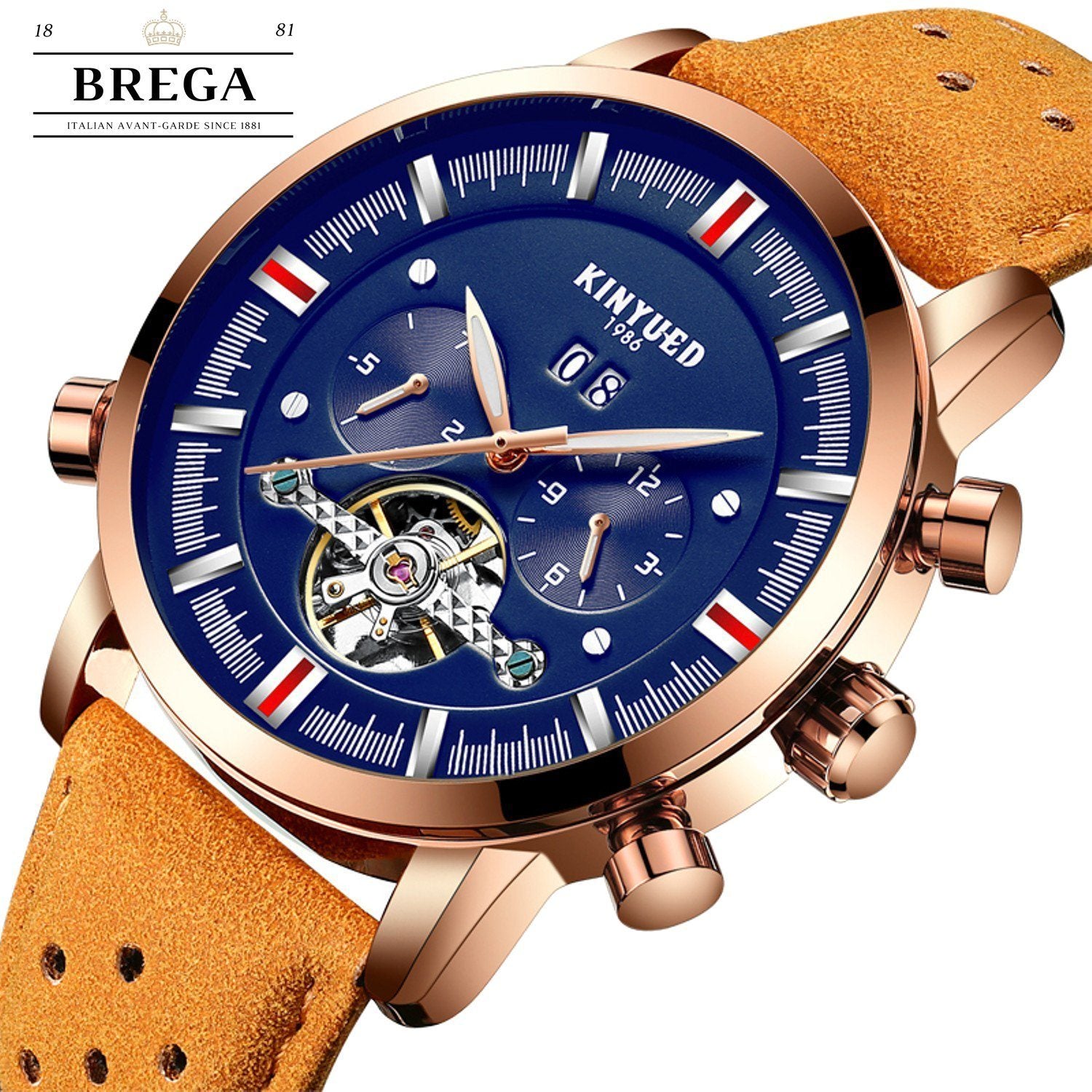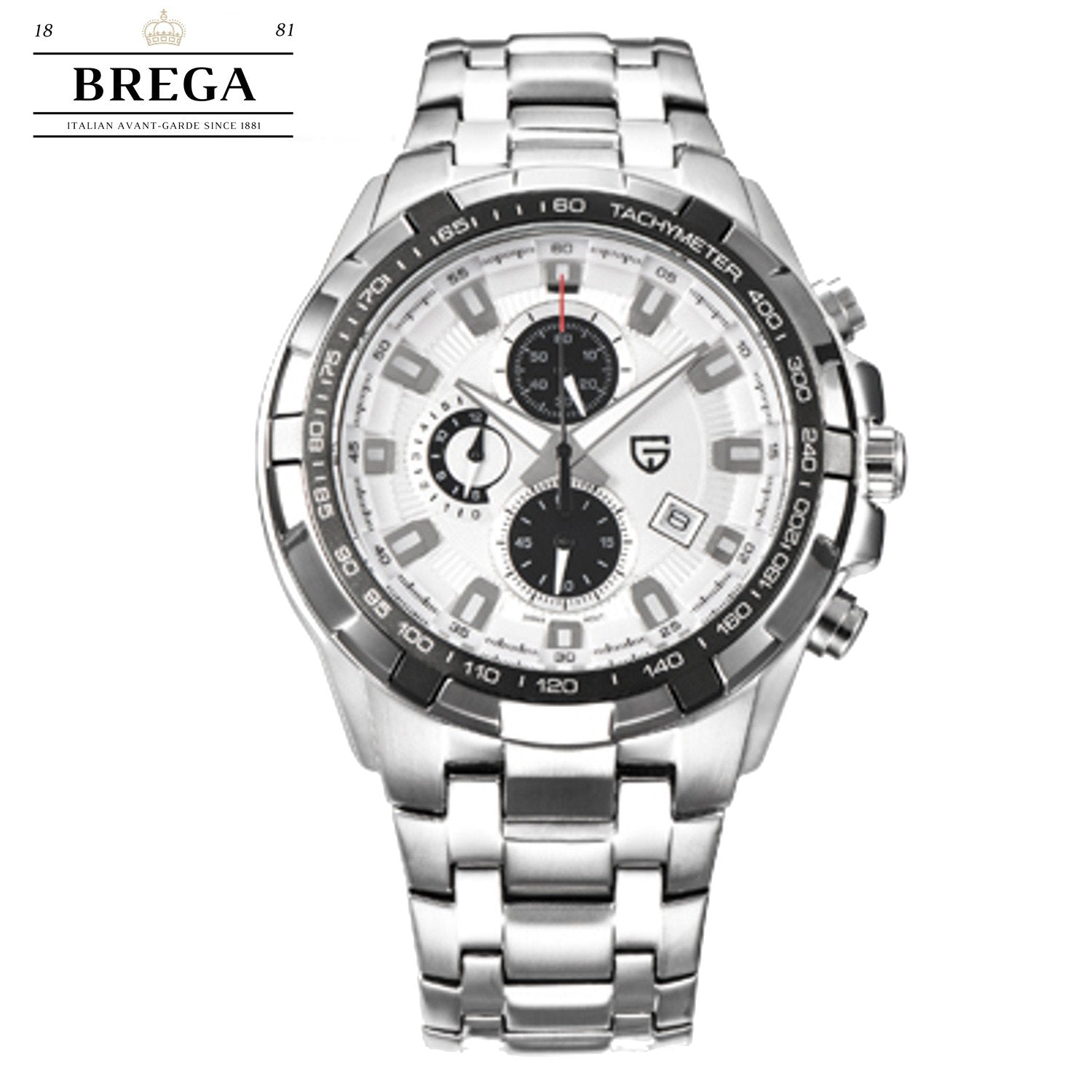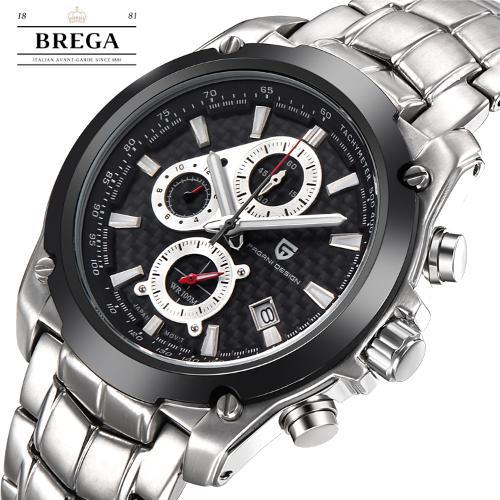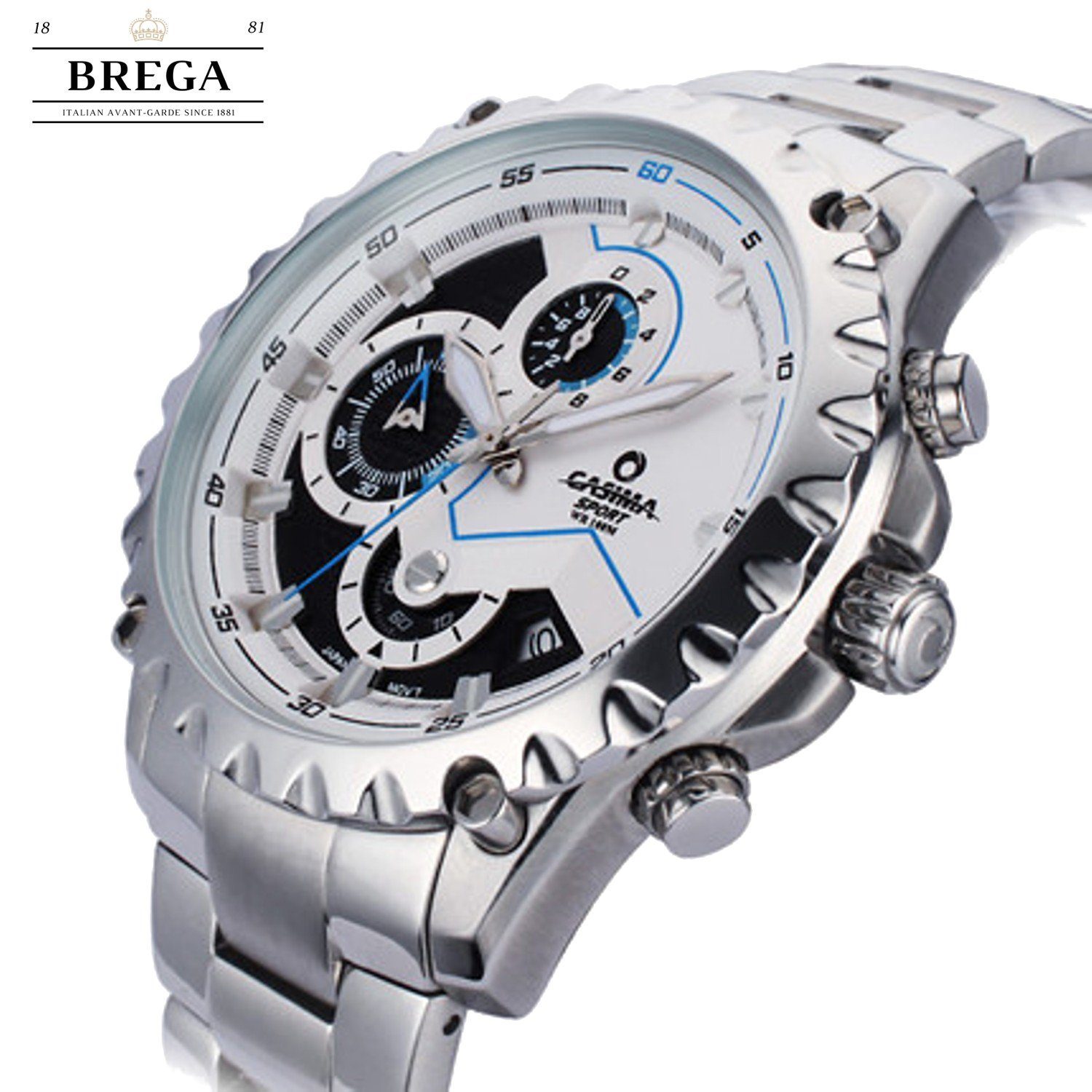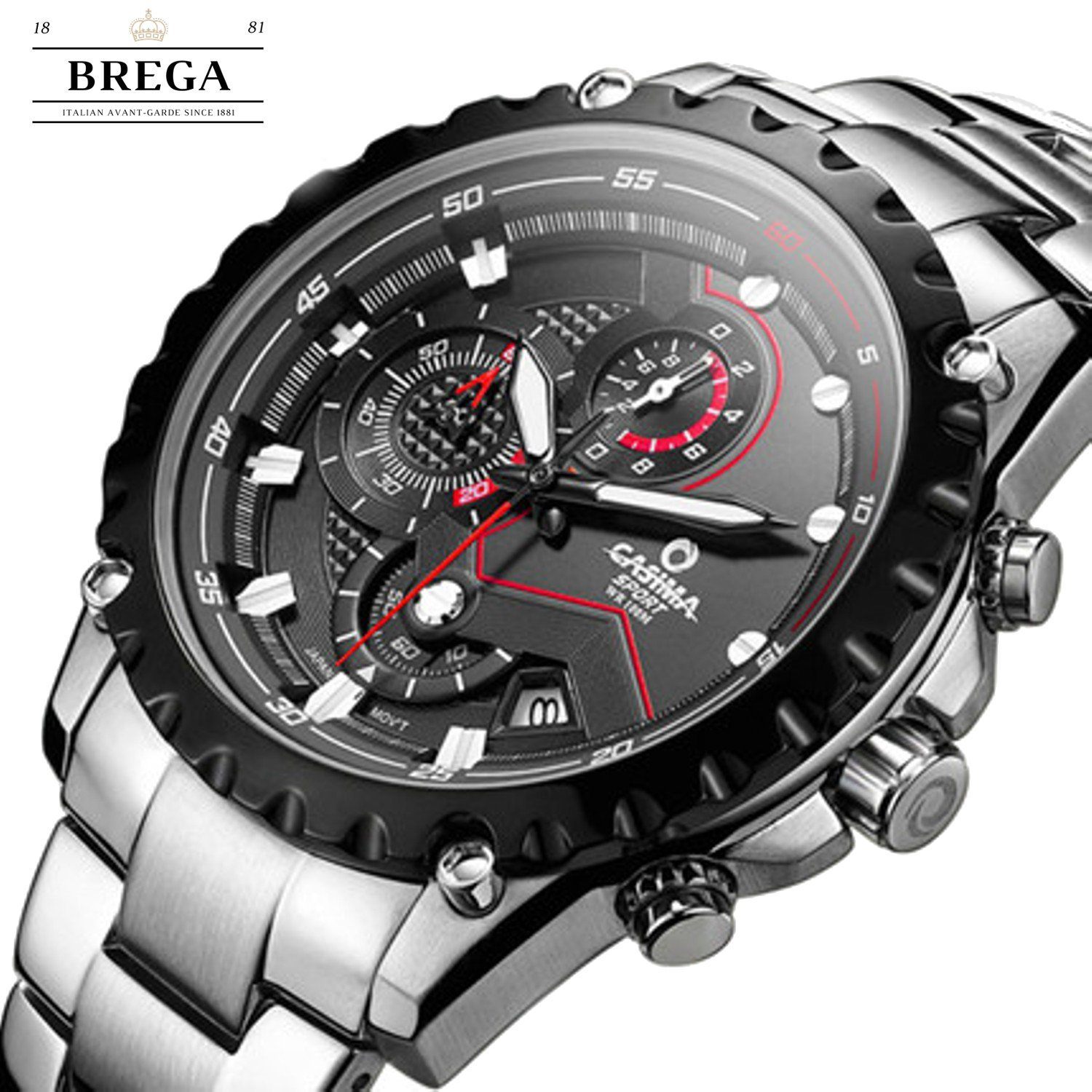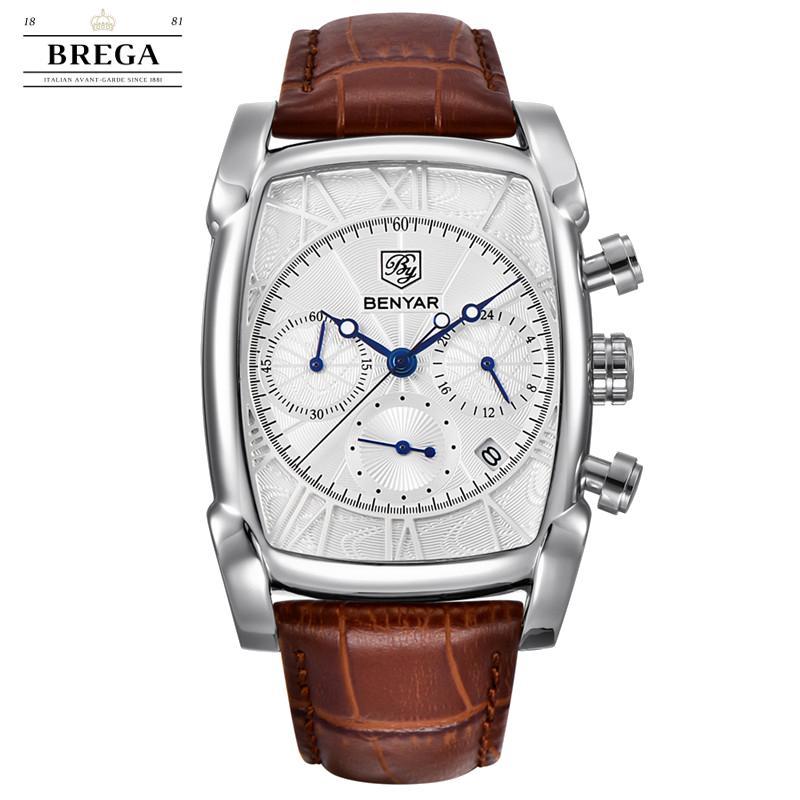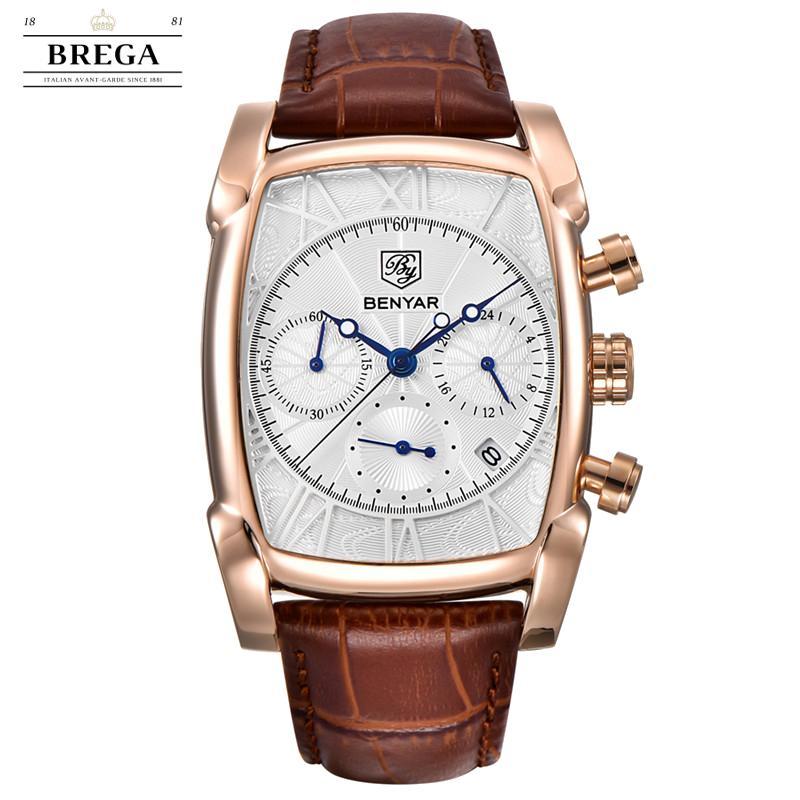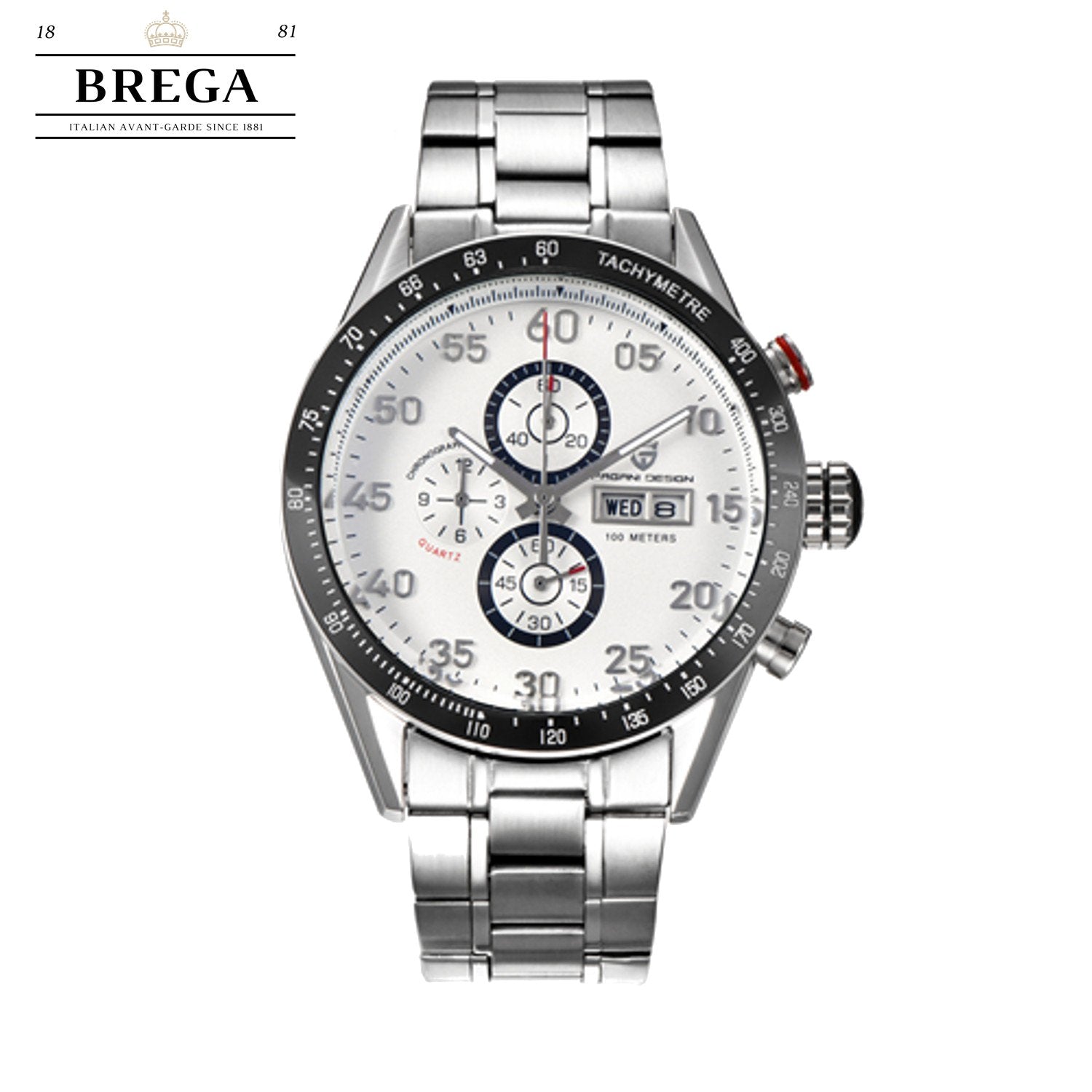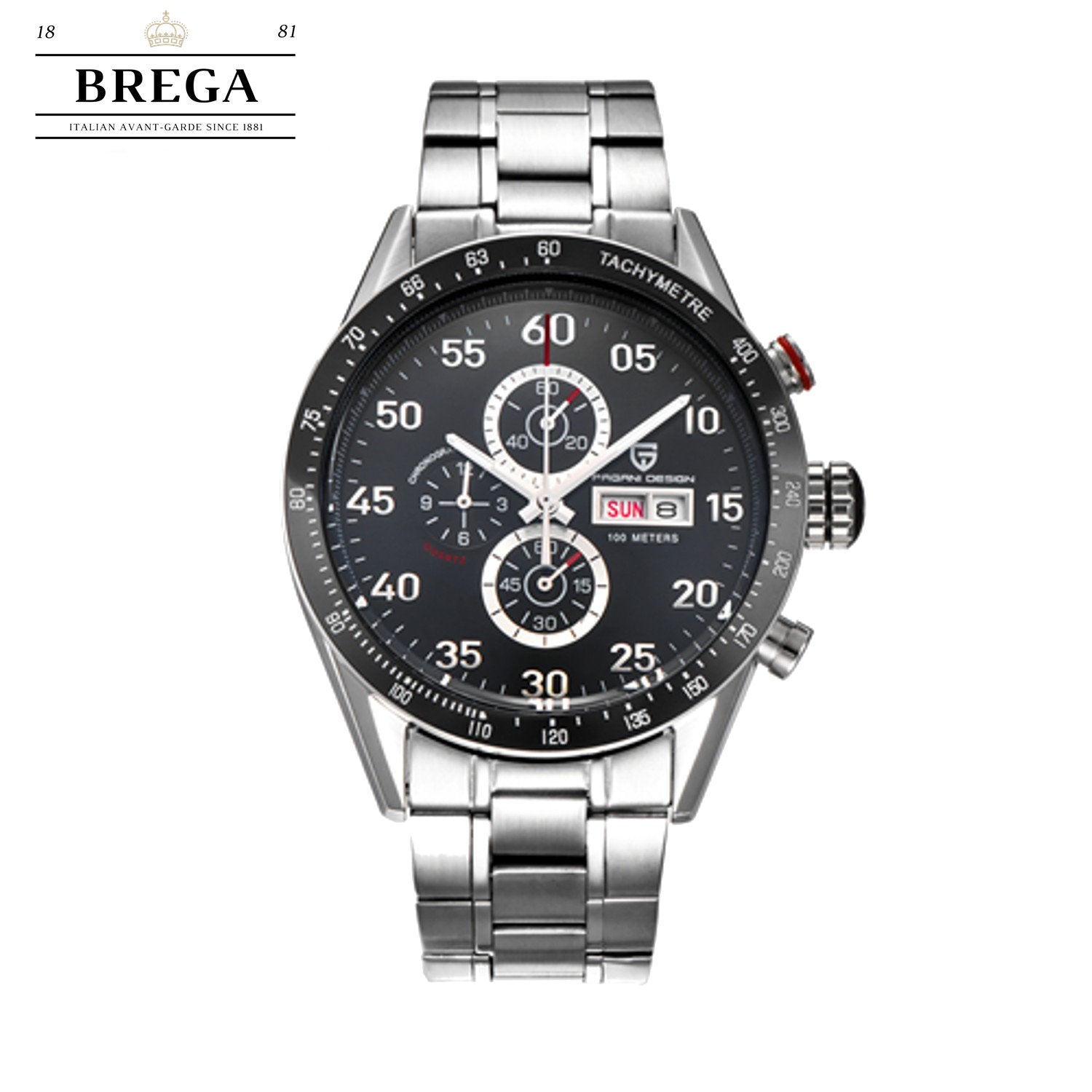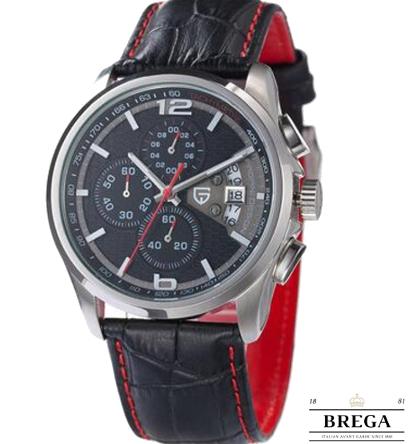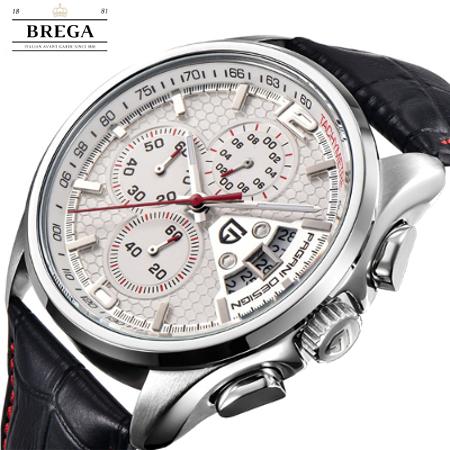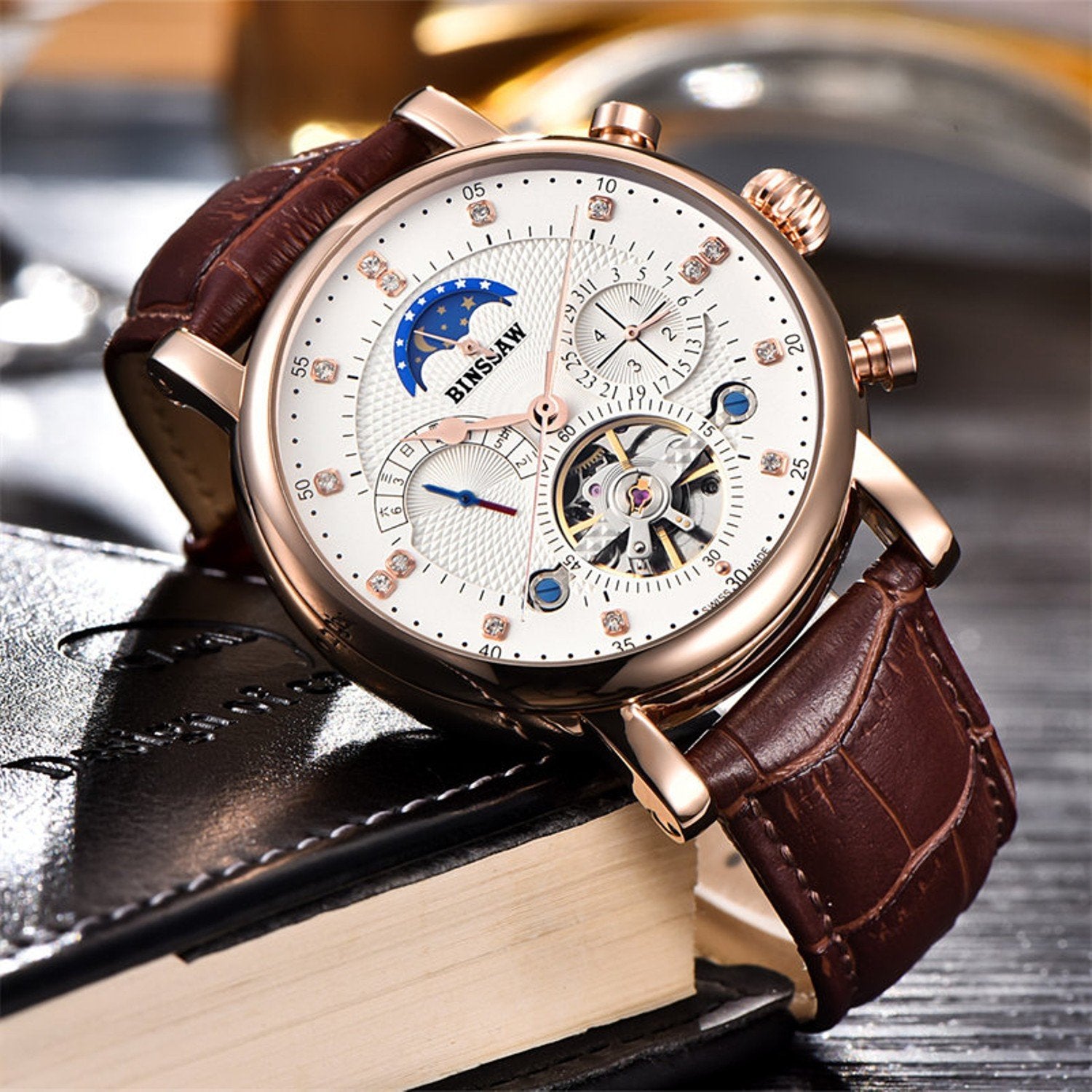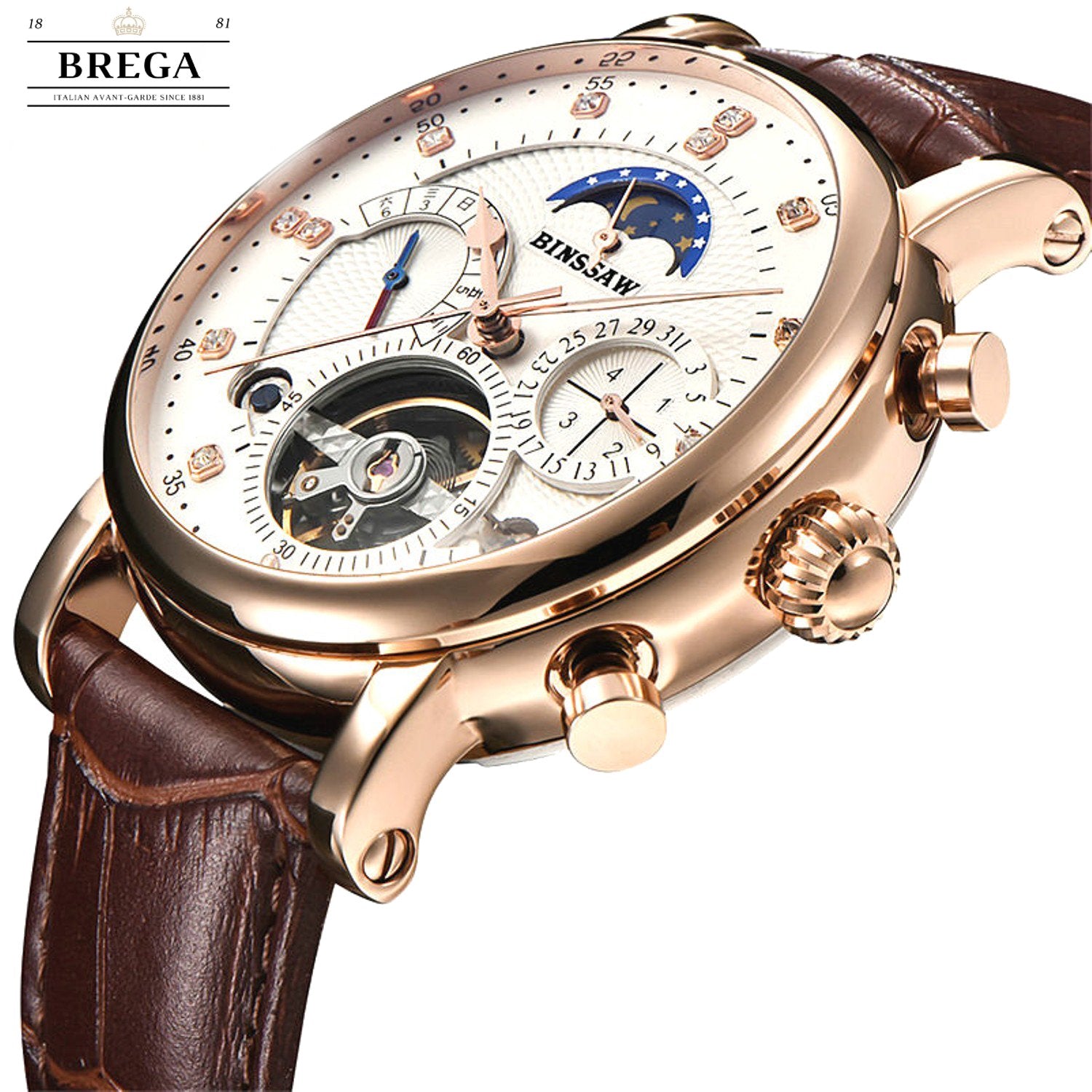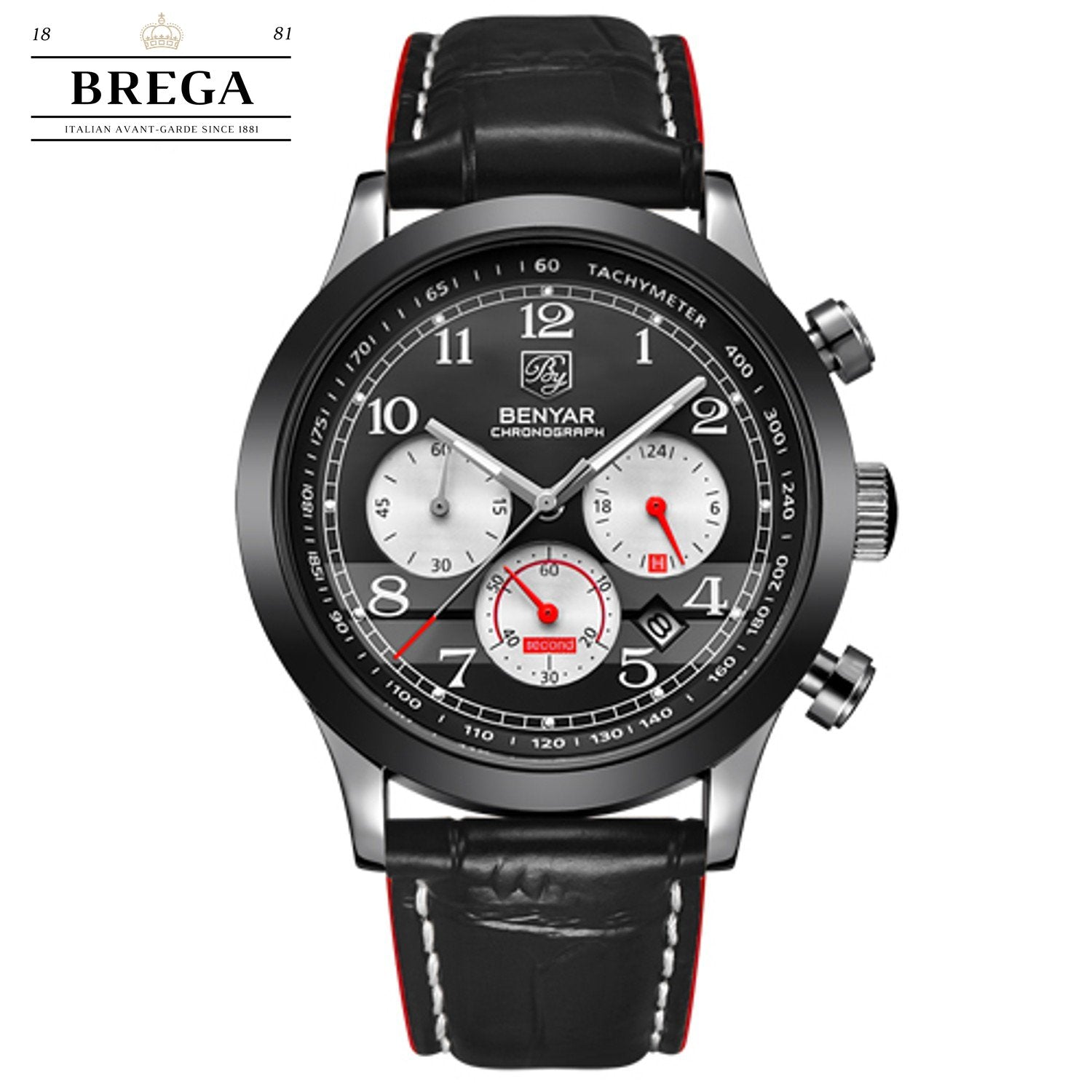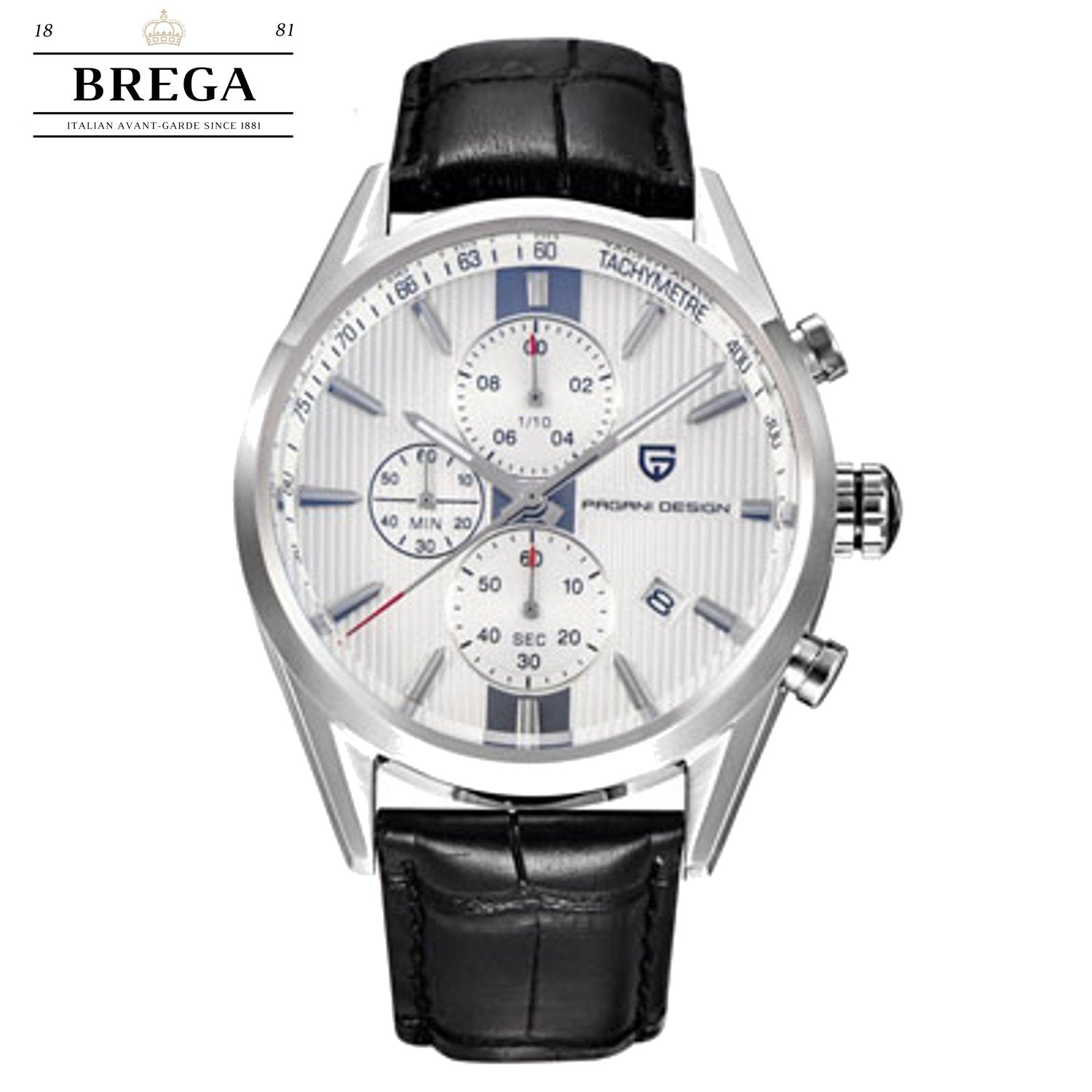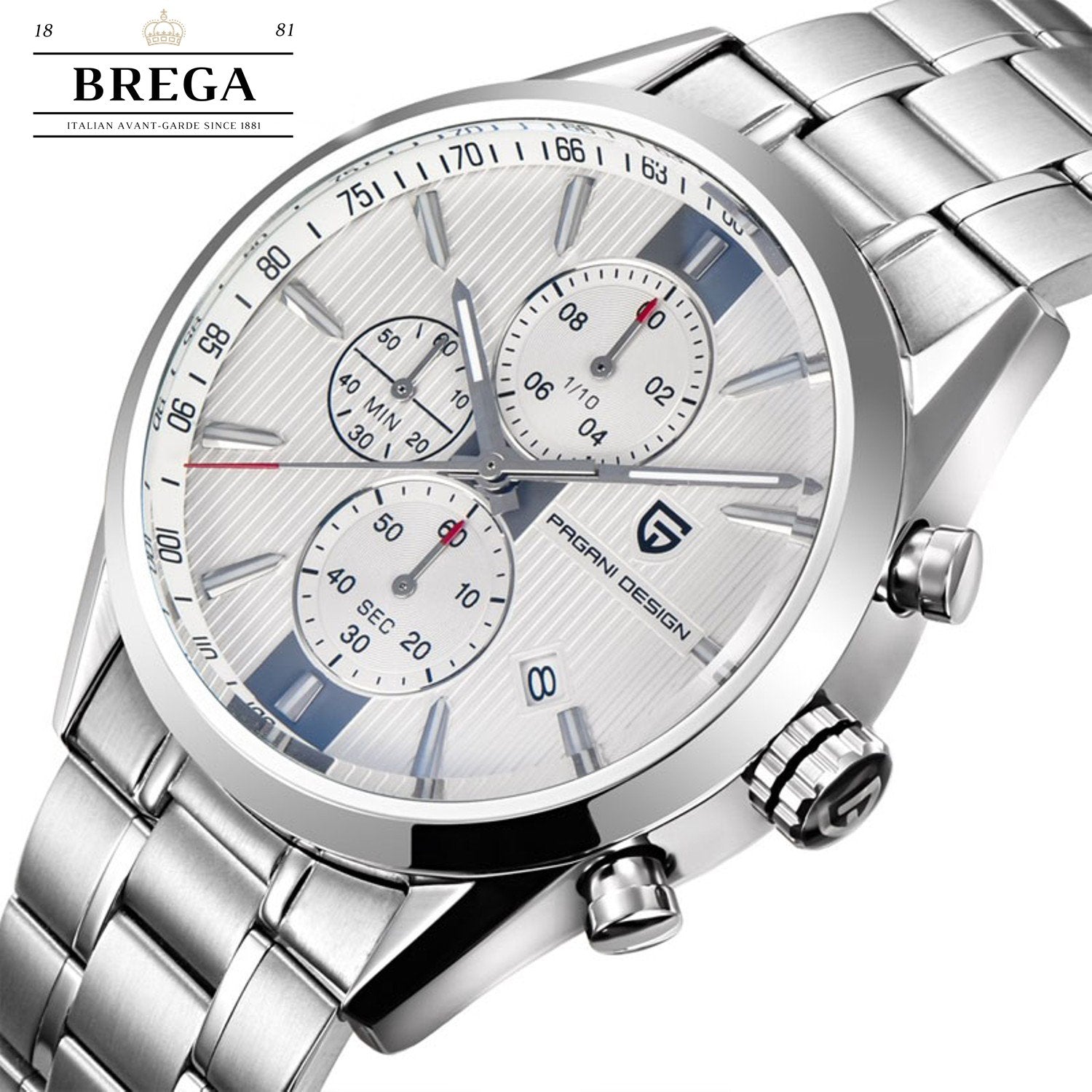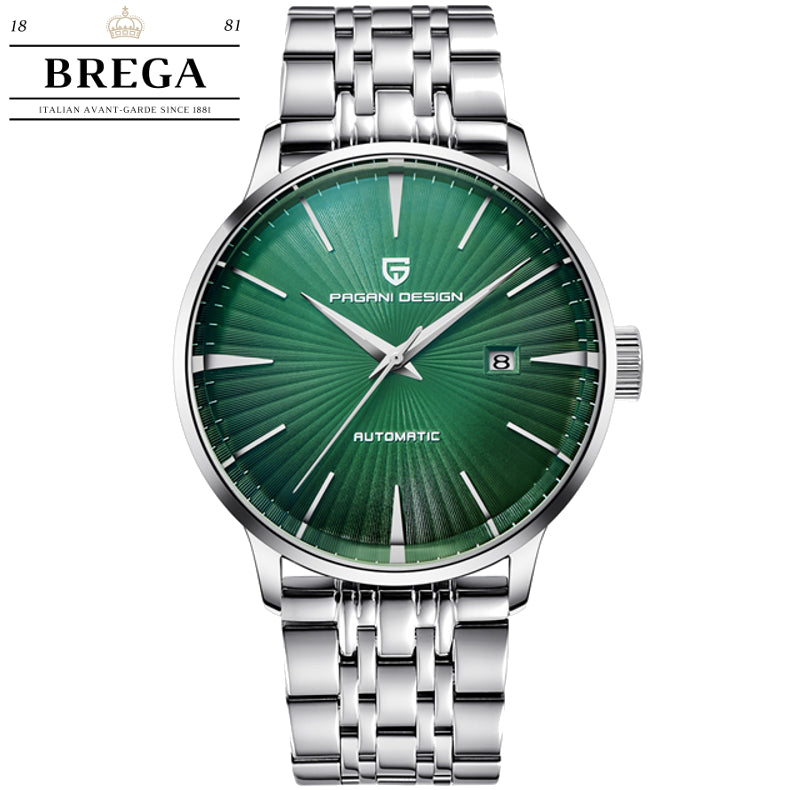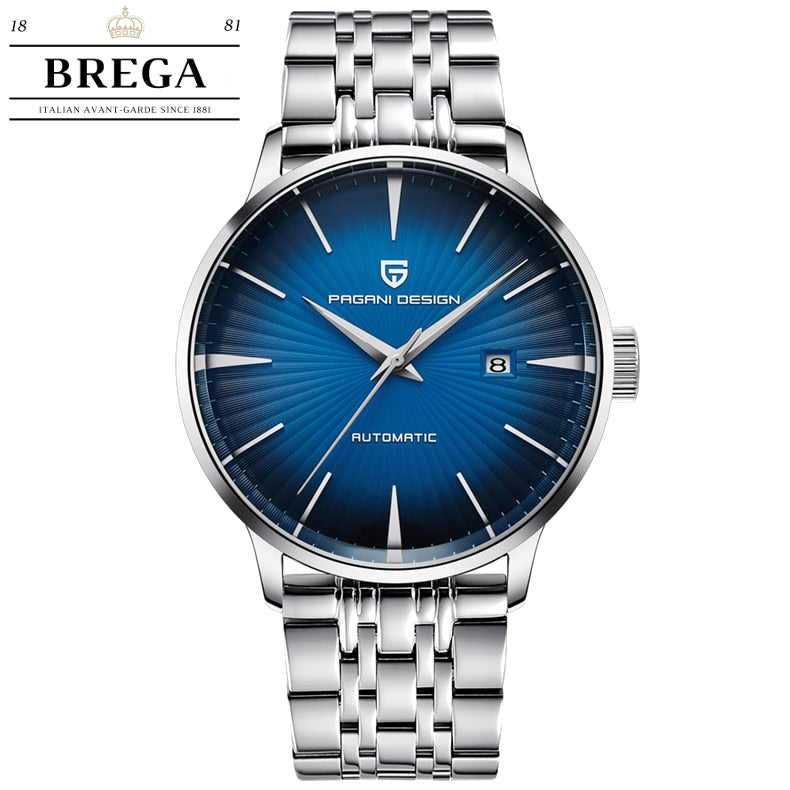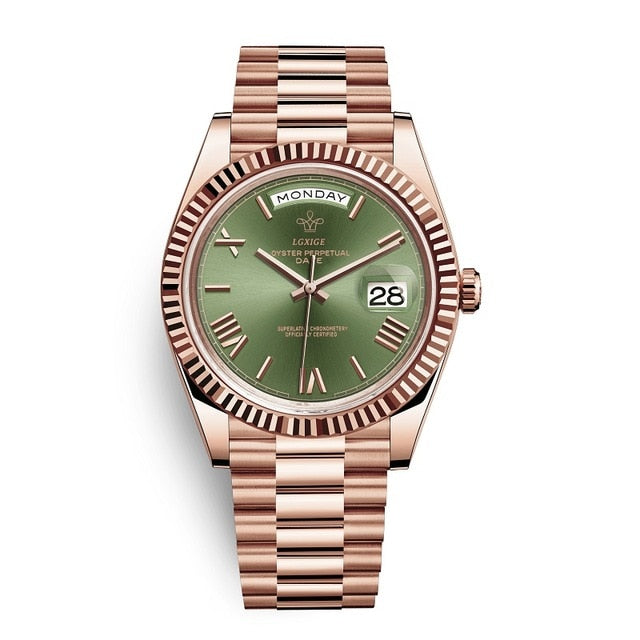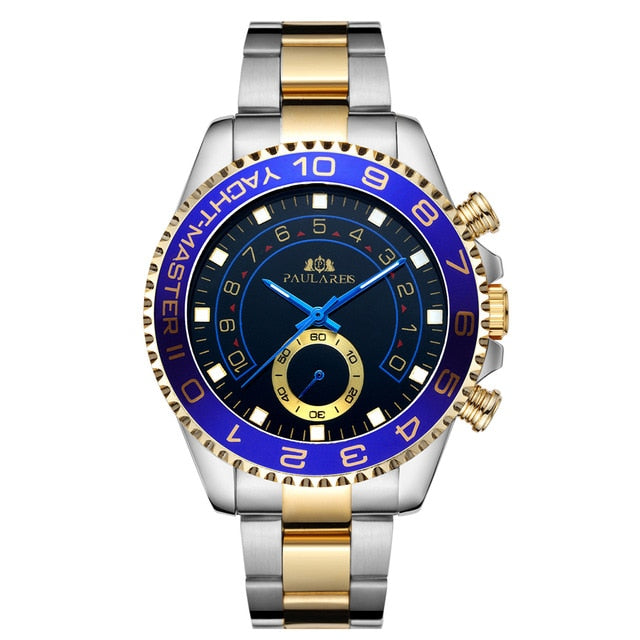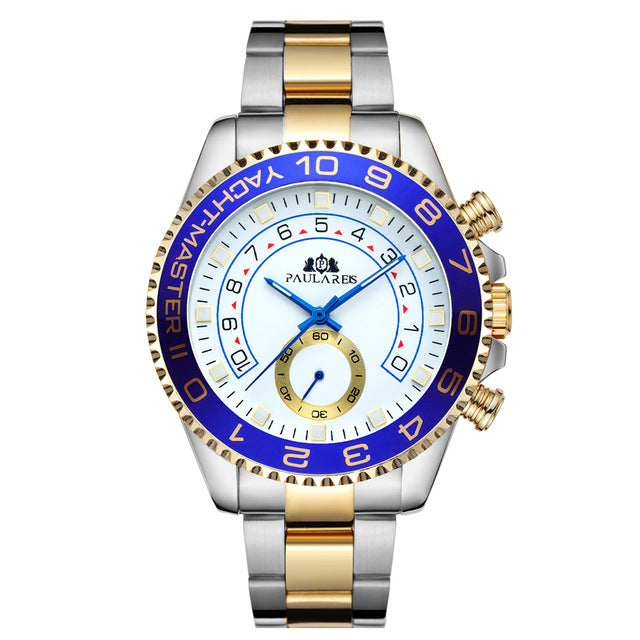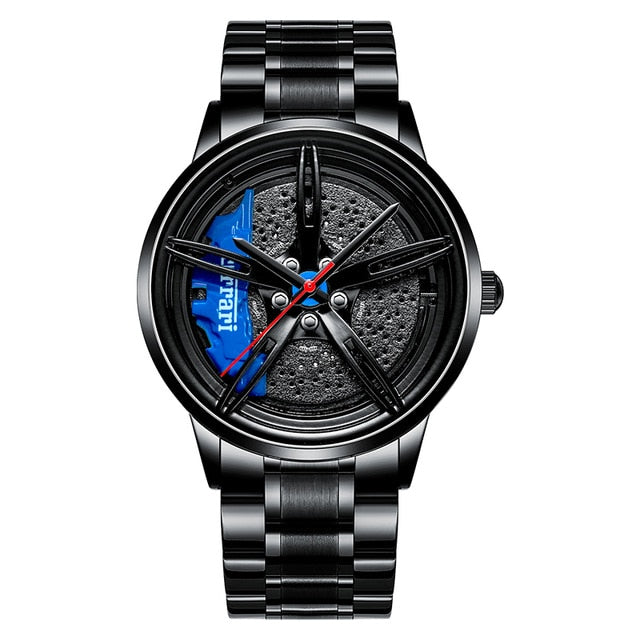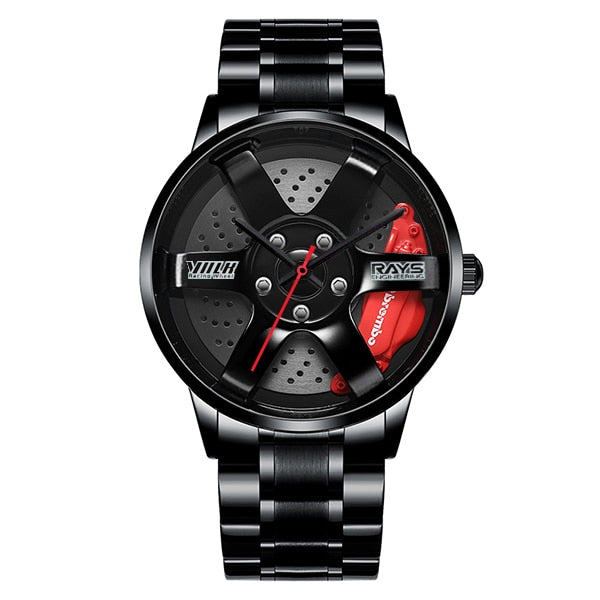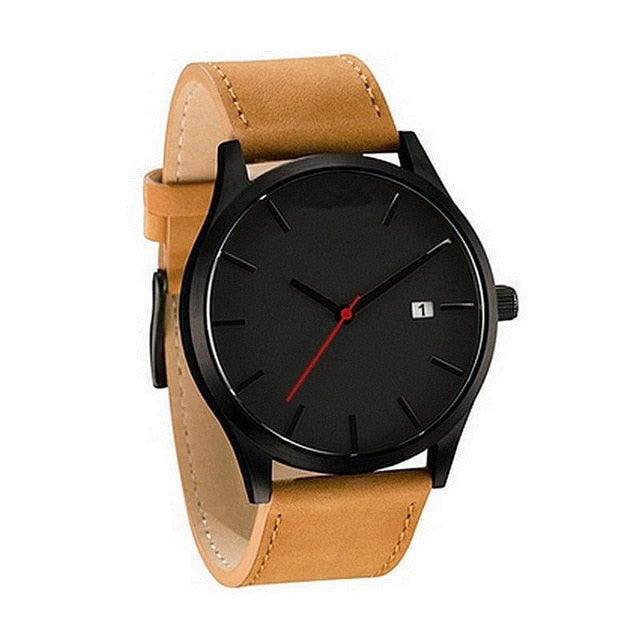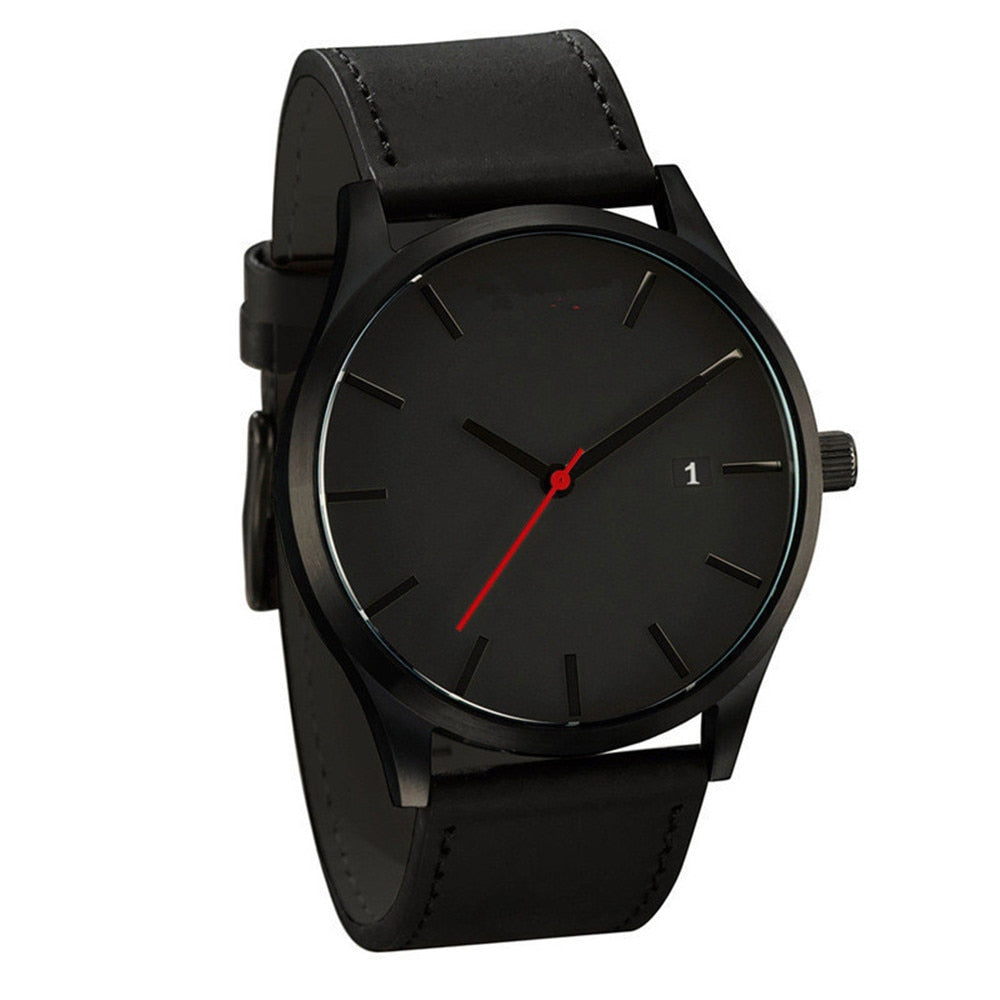
A number of companies now let customers rent luxury watches for the price of a monthly gym membership. Is this the latest unnecessary fad from the church of "disruption," or a genuinely novel approach to menswear?
Millennials, the thinking goes, are insatiable hedonists who live only to drown in an awesome wave of experiences. For this generation, there are no favorite flavors; just new ones. There are no neighborhood haunts; only the latest hottest restaurant pushed to phones via Yelp. Movies are streamed while hotel rooms, hip lofts, cars, private jets, and choppers materialize at the touch of button. Disruptors have made inroads in the menswear world, too—companies said to be the Ubers and Netflixes of men’s clothing and accessories.
But is the sharing economy actually important in the menswear universe? Besides tuxes, a place for men to rent flashy designer clothing, like a Rent the Runway for dudes, doesn’t really exist. There are sites that claim to do that, like ThreadThread, but something tells me the business isn’t super legit. (Nothing suggests a business is suspect more than a “meet the stylists” page that uses pictures of Miley Cyrus, a stock image of “women with short hair,” a Banana Republic ad, and Indian actress Chahat Khanna.) This is just the most salacious of the countless issues you run into when trying to “disrupt” menswear.
Watches, on the other hand, are perfectly positioned for this type of business. They don’t depreciate as much as clothes, they’re way more durable, and they have extremely high margins. And even if you can afford expensive clothing, you may not have the funds lying around for a $10,000 watch. So instead of shows, potential partners, cars, or clothes, services like Eleven James, Haute Vault, Clerkenwell, and Axess Chronos allow customers to browse through illustrious collections of dazzling, sparkling, and way-out-of-your-budget Rolexes, Patek Philippes, Hublots, Audemar Piguets, and get them on their wrists commitment-free. Or rather, virtually commitment-free: prices for Eleven James’ membership range anywhere from $169 to $899 per month, after you make the minimum six-month commitment. It’s not nothing, but it’s small change compared to buying a $10,000 watch, which is the average price of the watches in Eleven James’ collection.
You might say these companies aren’t just disrupting the watch-buying industry, but also radically changing our relationship to watches. When you spend a bunch of money on a watch, you’re supposed to think about your kids and your kids’ kids’ great grandkids: watches hold value both economic and sentimental. Passing down a subscription to Eleven James only brings a tear to the eye of some far-off venture capitalist. On the other hand, though, watch-rental services lower the barrier of entry, and raise a handful of interesting questions. What if having a fancy watch didn’t require having an extra-generous parent, or a year-end bonus? What if a rarefied industry was open to everybody for the price of a gym membership? From one angle, watch-rental looks like the latest in a string of unnecessary, vaguely “disruptive” businesses. From another, it looks a little like the future.
“My grandparents bought their cars, my parents bought them initially, and somewhere around my teenage years they started to lease them,” says Scott Roskind, Eleven James’ co-founder and chief asset officer. “Now they either lease or find a connected car.” The rise of other businesses that offer access without ownership have paved the way for the emergence of Eleven James and these other watch rental companies. “It's a question of actually getting folks to learn a slightly new behavior,” Roskind adds. Why own one Rolex when you could have unlimited access to dozens instead? This is a sales pitch young people are used to. There’s no reason you have to own anything anymore. It’s possible to get everything older generations once bought cheaper, easier, and faster. This now applies to watches.
All these services take a different route, but the gist is more or less the same: sign up for the service, pass a credit check, pick out the watch you’d like to rent, then send it back when you’re done with it. At Eleven James, different tiers of memberships offer access to a different set of watches; other companies charge different rates for individual watches. (An Omega Speedmaster Professional might set you back $199 for a month rental, versus $500 for a Rolex Submariner Date.) If you love the watch enough, you can pay to keep it. If you have your own pricey watch already, you can send it in and let these companies rent it out—a primary source of watch-sourcing for these companies. When they’re not renting out other people’s watches, they’ll buy them outright. Clerkenwell co-founder Stewart McMillan tells me the very first piece rented from Clerkenwell “was, of course, the most expensive watch we listed on the website.” They ran out and bought a used Rolex that day and shipped it off. That was in 2015, the same year Axess Chronos was founded and just a year after Eleven James opened its digital doors. “We were seeing these businesses pop up over and over again. Netflix was so widely used at the time [of our founding] and it definitely came up in conversations,” McMillan tells me. “That consumer behavior is just so much more widespread now.”
Ravi Dhar, the director of the Center for Customer Insights at Yale, adds that for today’s consumers—quote-unquote millennials—the need to own just isn’t there. “Whether it was built by all the options in the market with the sharing economy, or that they grew up in the financial crisis, possessions became less important,” he says. Millennials want the watch, but we want a lot of other things, too: to travel, to eat at fancy restaurants, to Instagram our fashionable lifestyles until we sucker someone into subsidizing it. Eleven James gives customers the “ability to say, ‘I can take that vacation and wear that watch,’” says Roskind. “All the sudden now they're getting two things.” They’re able to lead a lifestyle that would have been out of reach if they were, say, saving their money to buy a watch.
“We're the only company out there, at least in this arena, that's allowing individuals to live a lifestyle they maybe couldn't afford,” says Roskind. And Eleven James has made additive lifestyle components a core part of its business. The brand allows it subscribers to make reservations at exclusive bars like Spring Place in New York, invites them to hang out in airplane hangars so they can at least be around private jets, and organizes events with horologists and expert watchmakers. For one-time Eleven James subscriber Edgar DeLeon, this lifestyle component was a draw. When DeLeon first read about the service, he recalls the article mentioned a man who was upgraded to first class on a flight because an attendant noticed his ritzy timepiece. “That really made an impression on me,” says DeLeon. “That is how I would love, and do love, to live my lifestyle.”
It goes back to the mindset of the customers these companies are courting. An Eleven James subscriber is theoretically less concerned with the intricacies of their new Rolex Submariner, and more infatuated with the experience of wearing the watch. The brands I spoke with all brought up the idea that these watches are often rented to complement an instant, to pull it into the orbit of a bigger scene: a honeymoon, wedding, or graduation. “It's not about the watch anymore but it's about making a perfect moment,” says Dhar. This all sounds good to VCs who’ve heard how much millennials value experience: investors have poured over $18 million into the most successful of the group, Eleven James.
Early returns aren’t exactly overwhelming, though. Eleven James tells me “membership growth has been consistent and steady since launch, and membership base is currently in the low thousands.” Clerkenwell’s McMillan says “I don’t want to say, ‘Oh, it's been some tremendous success,’ because it hasn't, but it's profitable for us.”
There’s enough interest here to support several companies, including one that seems to be outpacing the rest in Eleven James. They’re doing well—not Netflix-Uber-AirBnb well, but well enough. But what these companies might have underestimated is that millennials still want to own stuff. They may rent a watch to create a perfect moment, but there’s a desire to keep perfection around. “After the wedding they're like, ‘I have to buy this watch, I got married in this watch,’” says Roskind. It creates an emotional tie. And the idea that watches are heirlooms embedded with emotion still resonates with customers.
“There is something very special about making your own history with [a watch] and knowing it's only yours, and it's only been yours, and that you can pass it on, because for me tradition is a big thing, so I'm trying to pass it on to my son at some point,” says DeLeon.
Accordingly, these companies are building on try-to-buy style services. This is, inarguably, a much smarter way to shop—the rare moment where a digital disruptor’s promise lives up to the hype. Instead of being hounded by a sales clerk and deciding whether or not to drop thousands on a watch while standing in a store, it’s now possible to live with a watch before making a very costly decision. (How much of an impact this has on the business depends on the tier of the subscriber and how expensive of a watch was purchased.) Eleven James noticed that customers were interested in more than just the freedom to access “probably the best collection of watches in the world,” Roskind says. They want to find the watch. In fact, Roskind says, every Eleven James subscriber within the course of their yearlong membership asks for a quote on a watch they have worn or are currently wearing. “We’ve gotten an enormous amount of business from [try before you buy],” Roskind says. “And as we move forward we are going to promote it more than we've done today, internally and externally.” DeLeon says it’s the reason he initially tried the service and he ended his subscription once he found the watch he was ready to commit to.
So while millennials might get dragged through the mud as good-for-nothing streamers who are killing beer, light yogurt, and the movie business, they’re also forcing us to ask hard questions about received wisdom. We’ve got an old way of doing things—but sometimes it's worth asking why we're still doing things that way. It’s not all that hard to agree that spending more than $10,000 on a watch you only get to try on for a couple minutes under the harsh light of a showroom sucks, nor is it difficult to argue that watches shouldn't be the exclusive province of the wealthy. These watch-rental companies make you wonder: between the millennial carefully vetting a massive purchase and the guy blowing a ton of money on a momentary infatuation, who sounds like the insatiable experience chaser? Watch renters are taking advantage of these companies to make the most well-informed investment possible. The question they’re asking isn’t Would you rather own one Rolex or have access to 20? It’s something a little easier to swallow, and maybe even prudent: Wouldn’t you rather try 20 Rolexes before settling down with one?
Find more watches to rent here.

